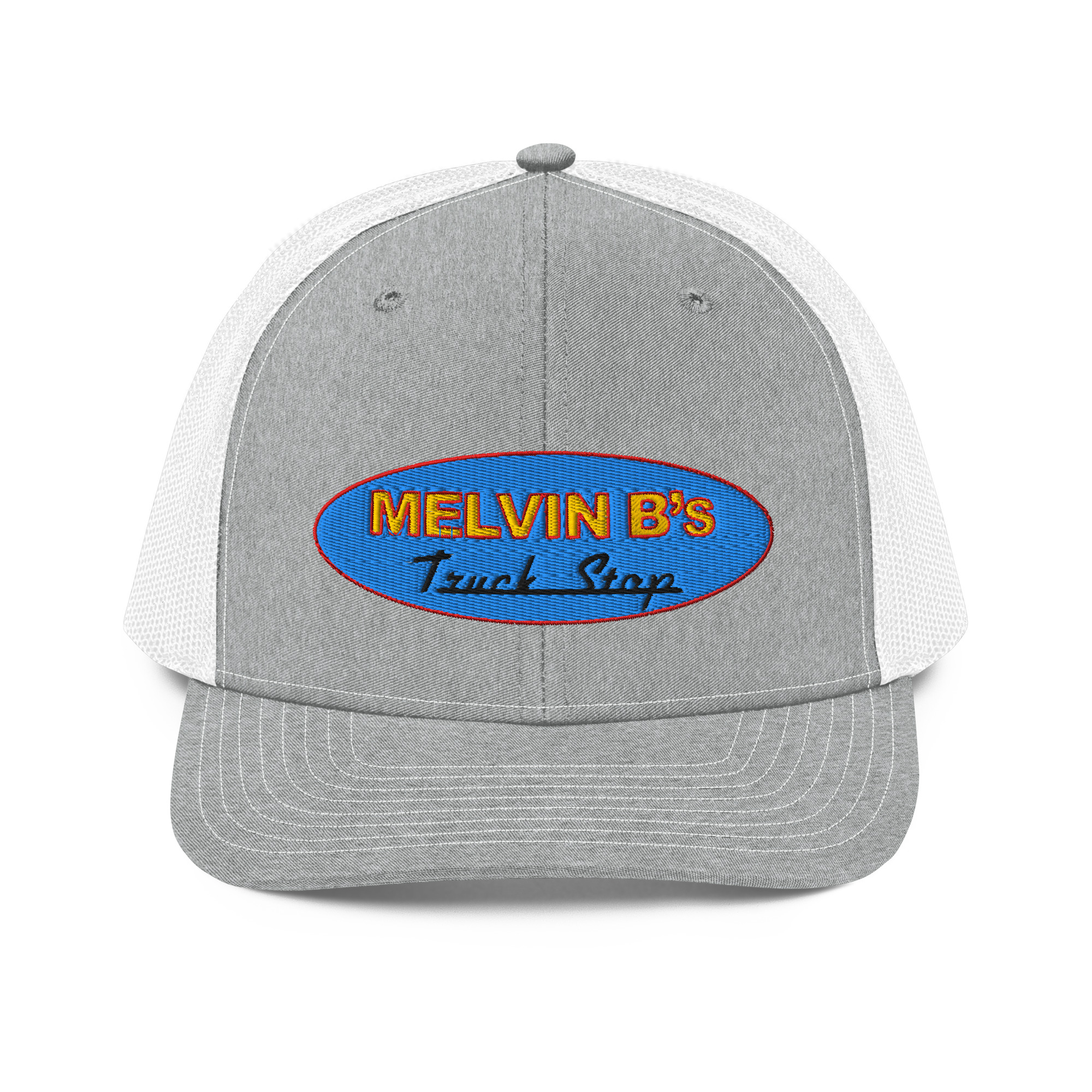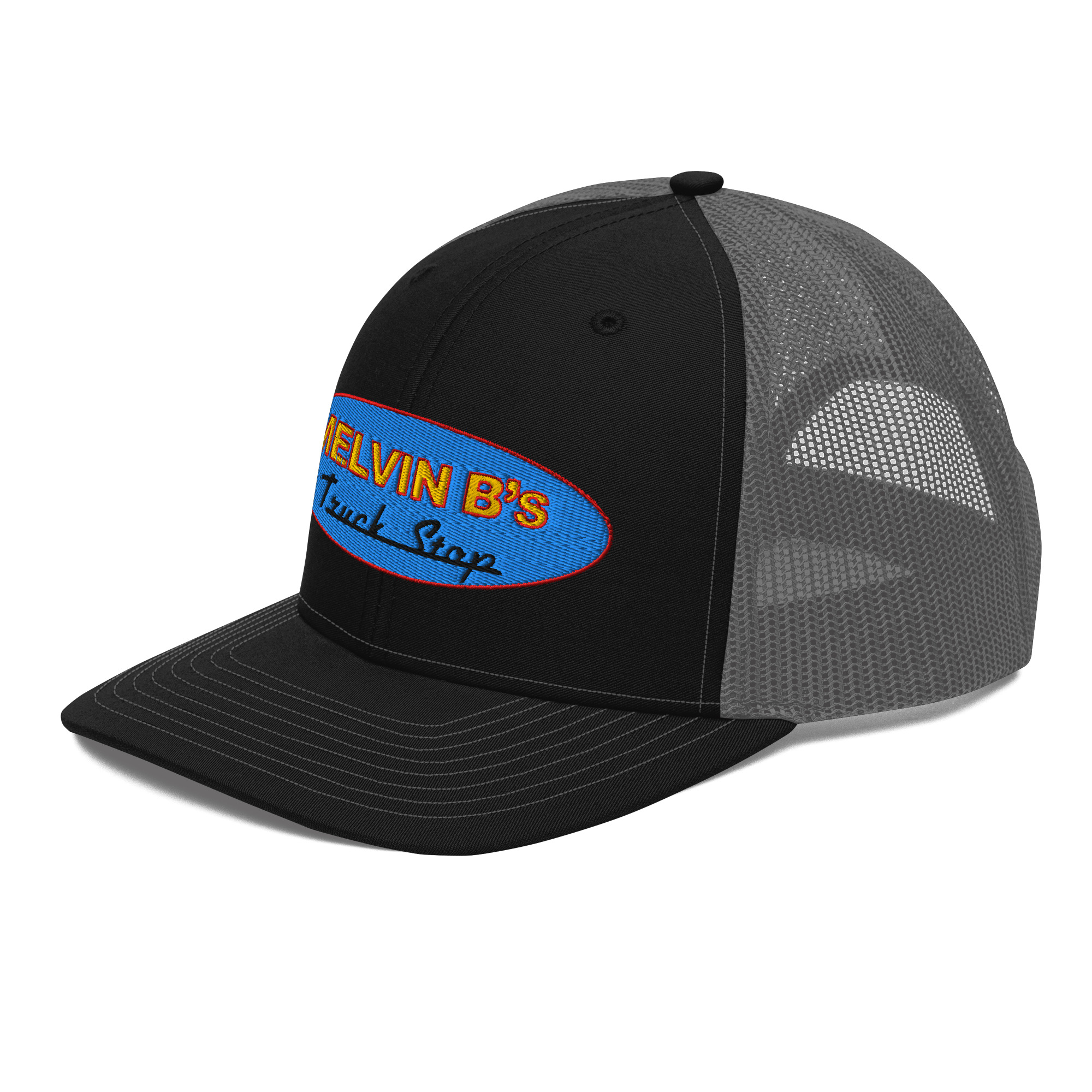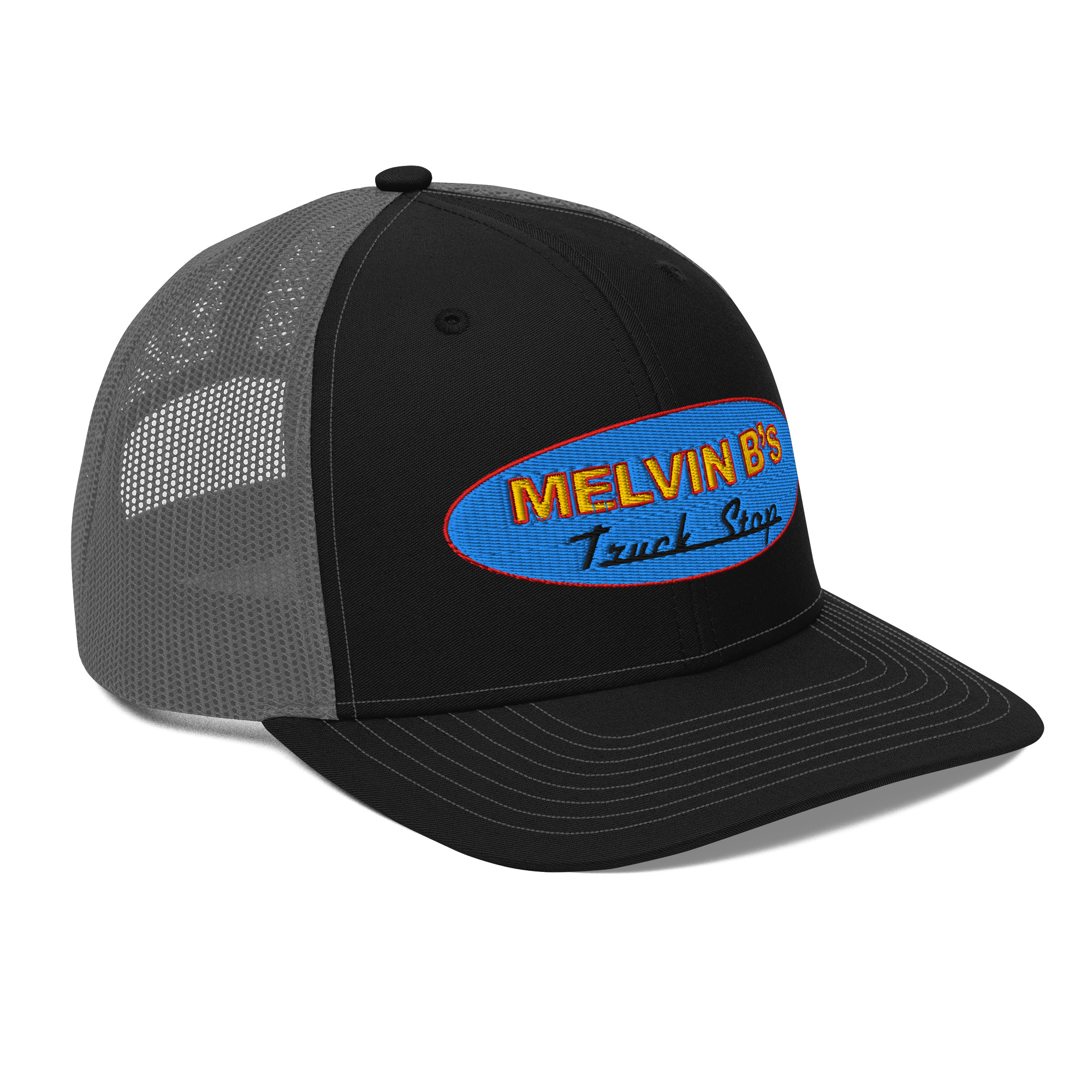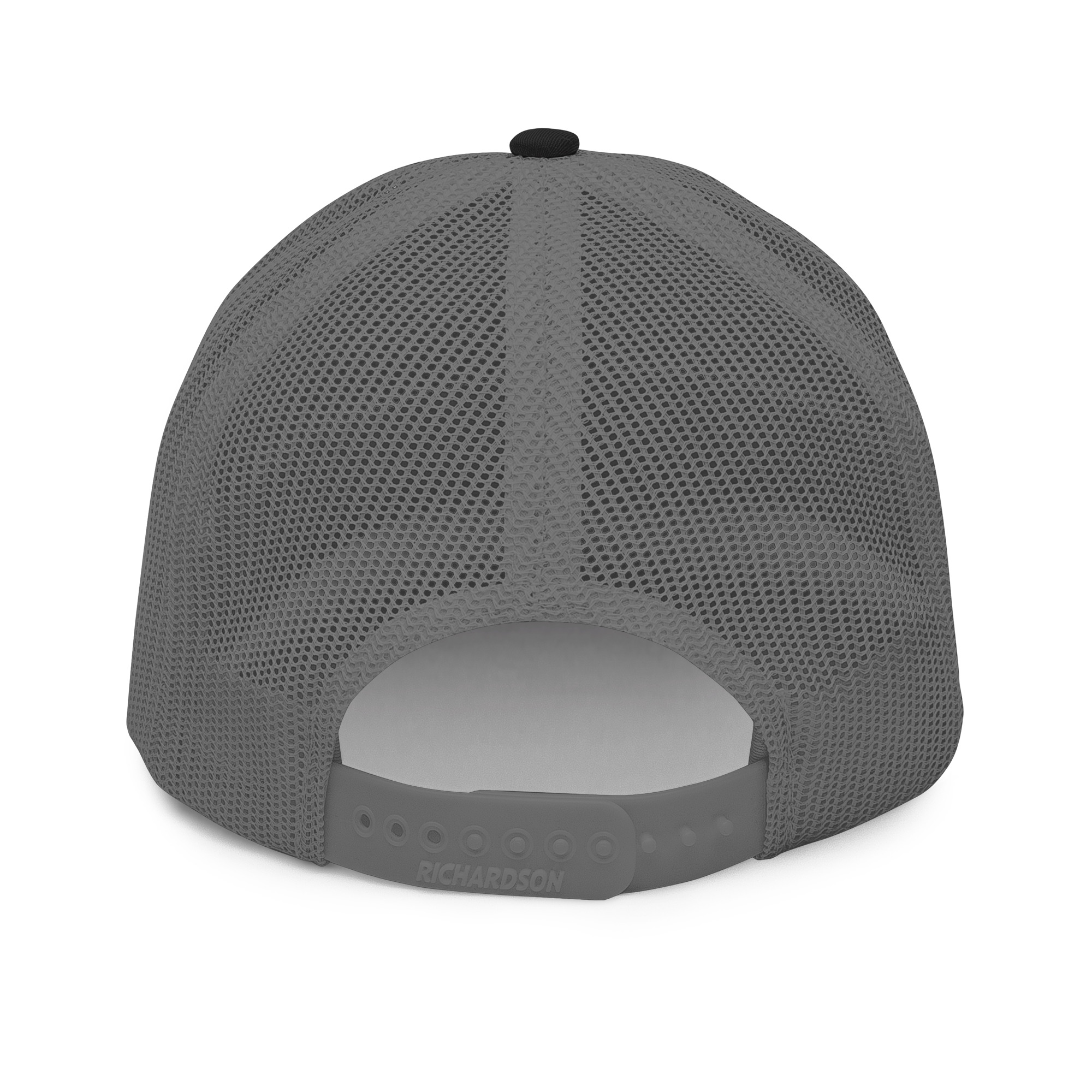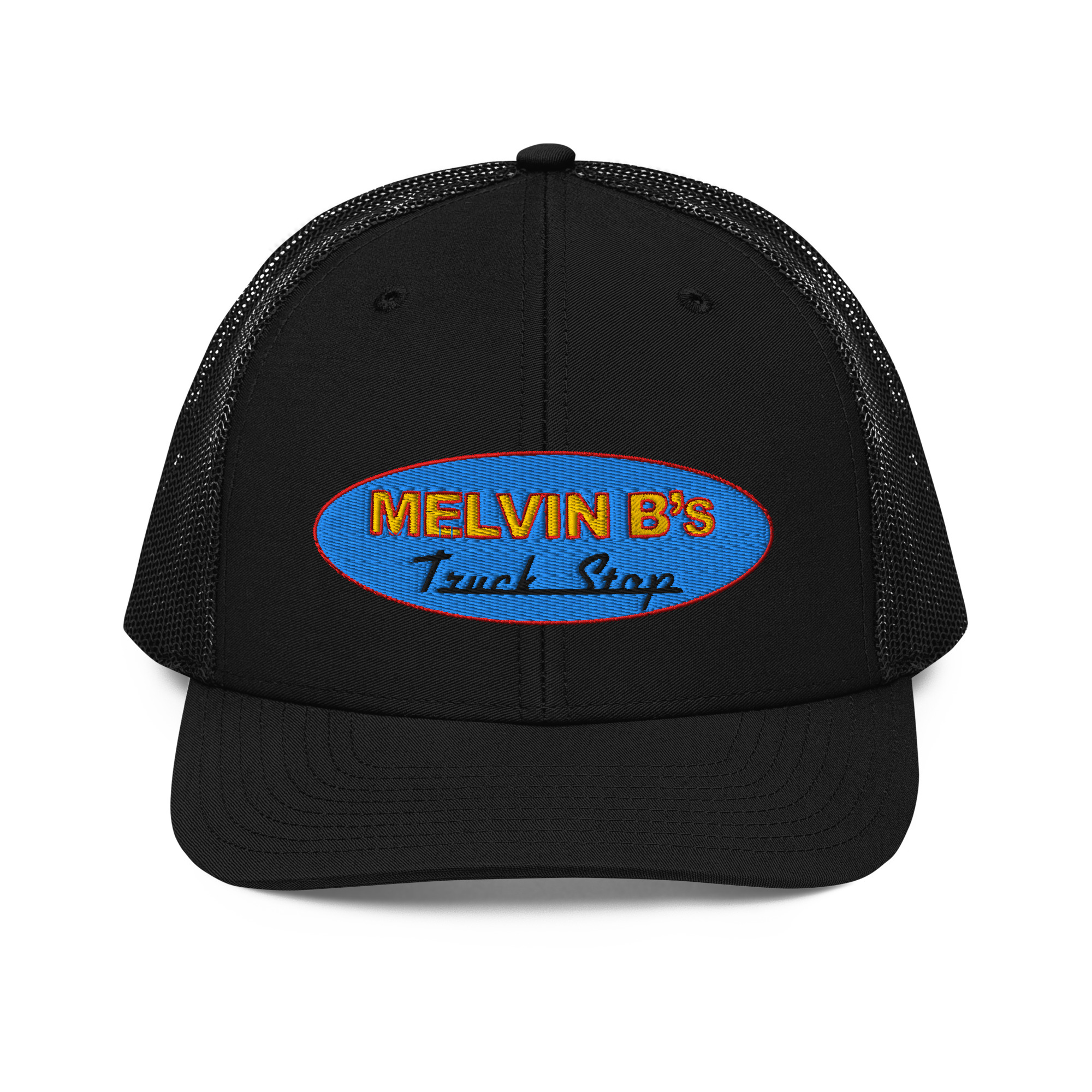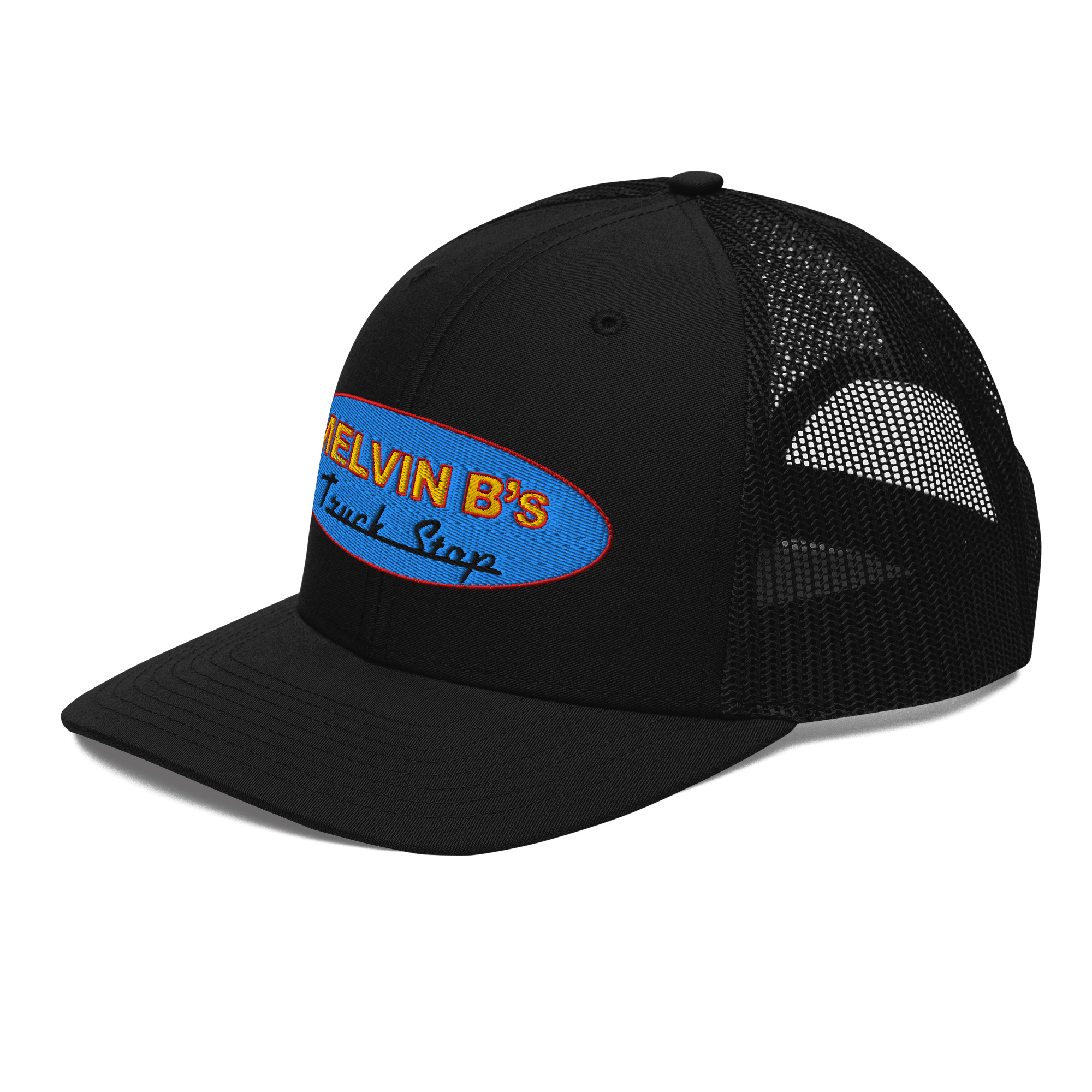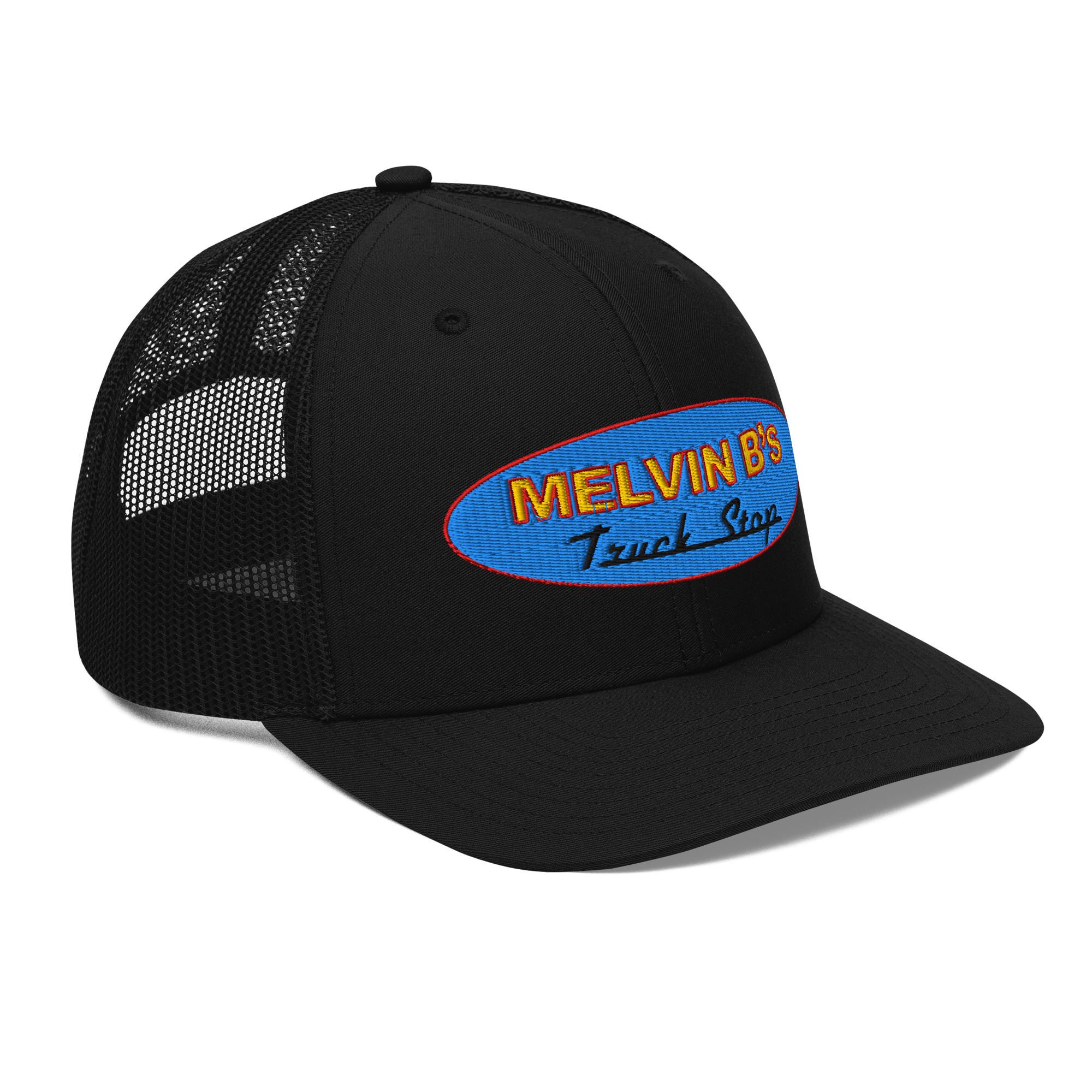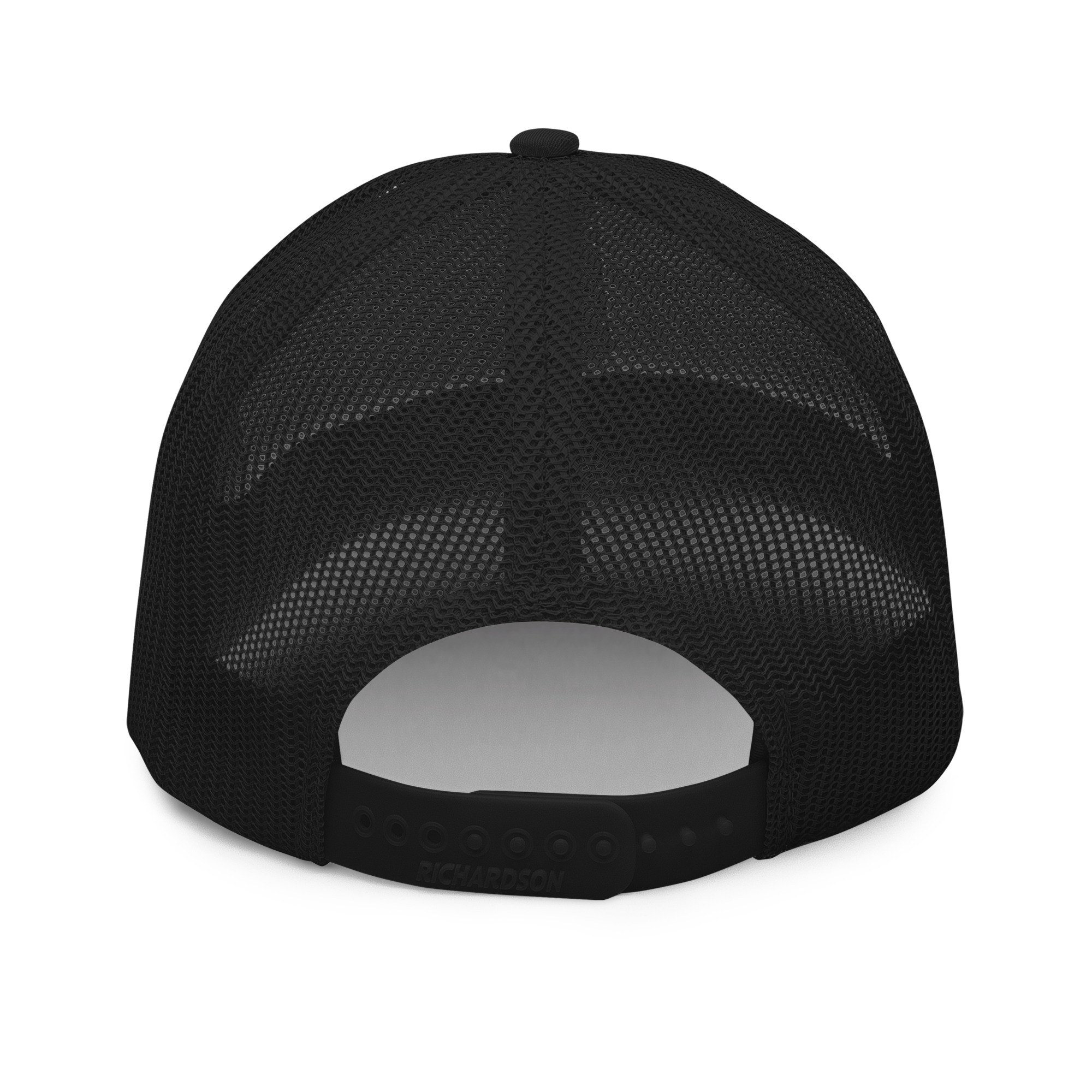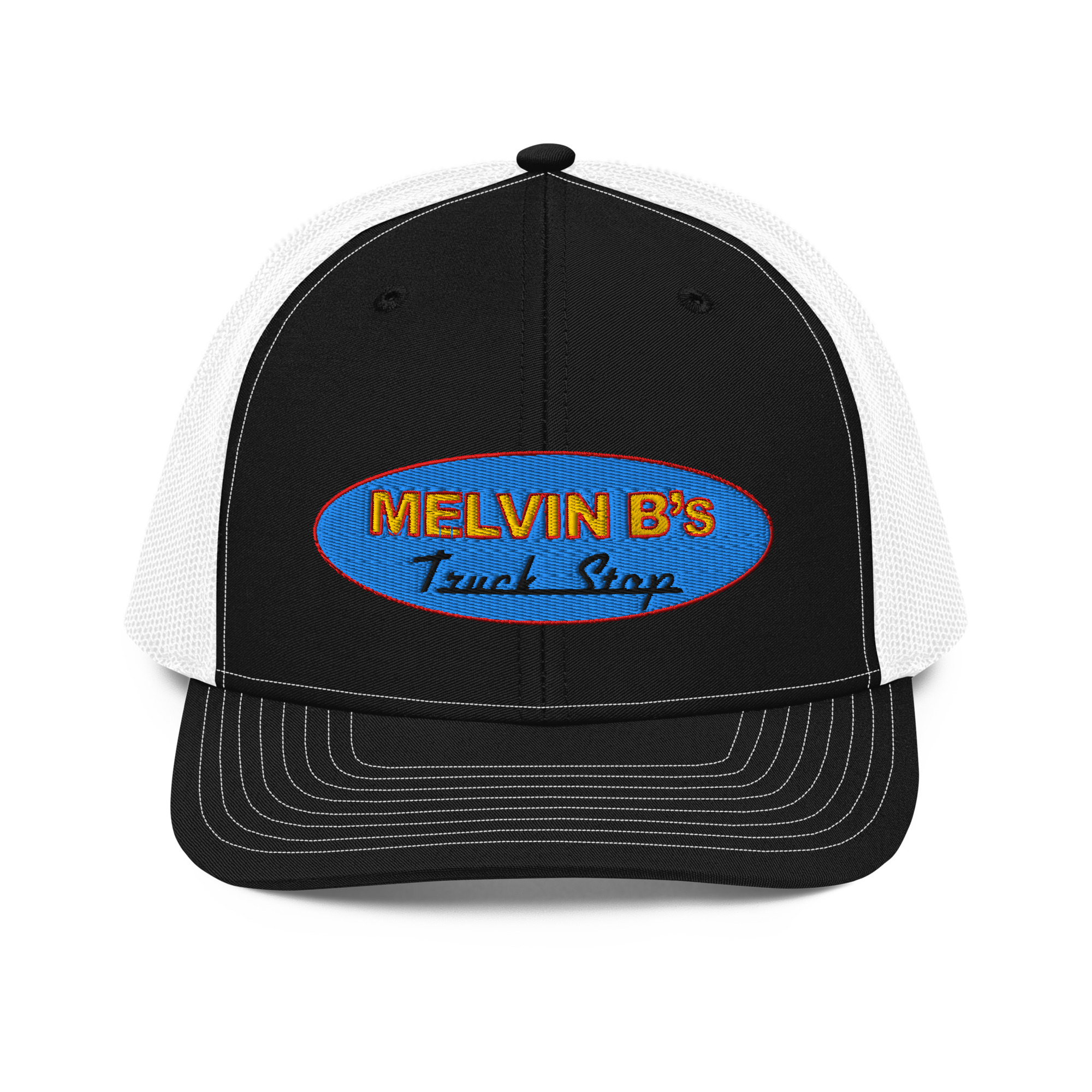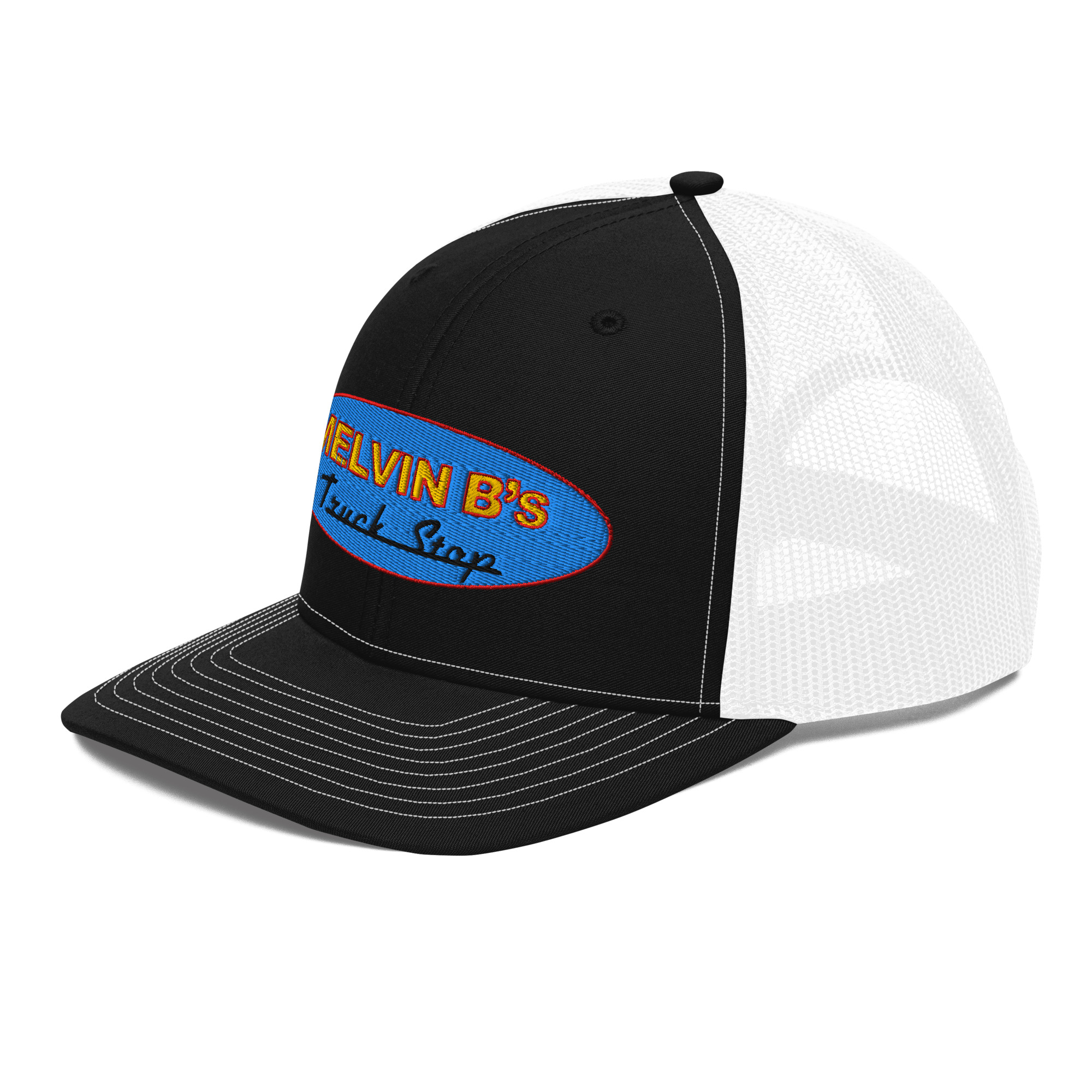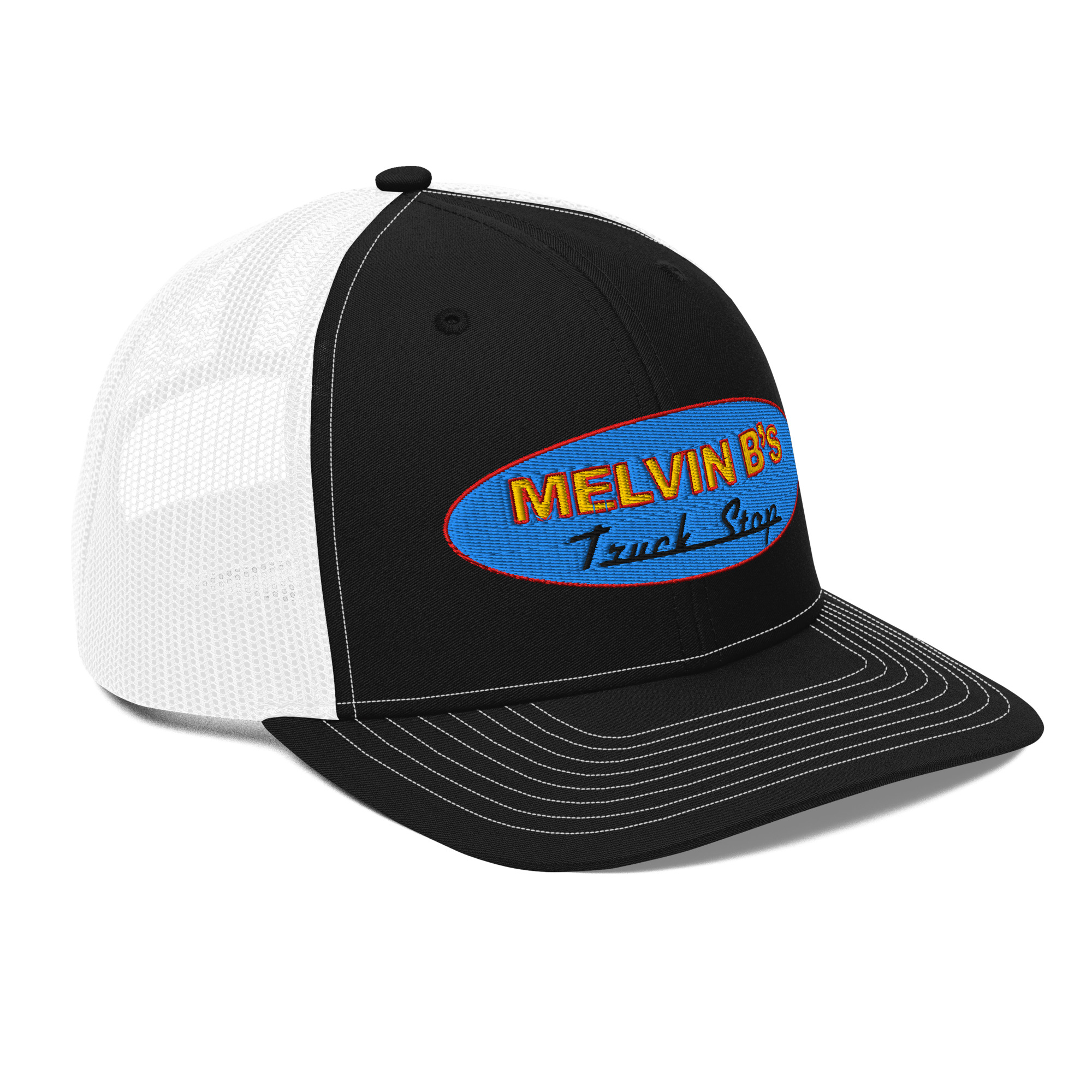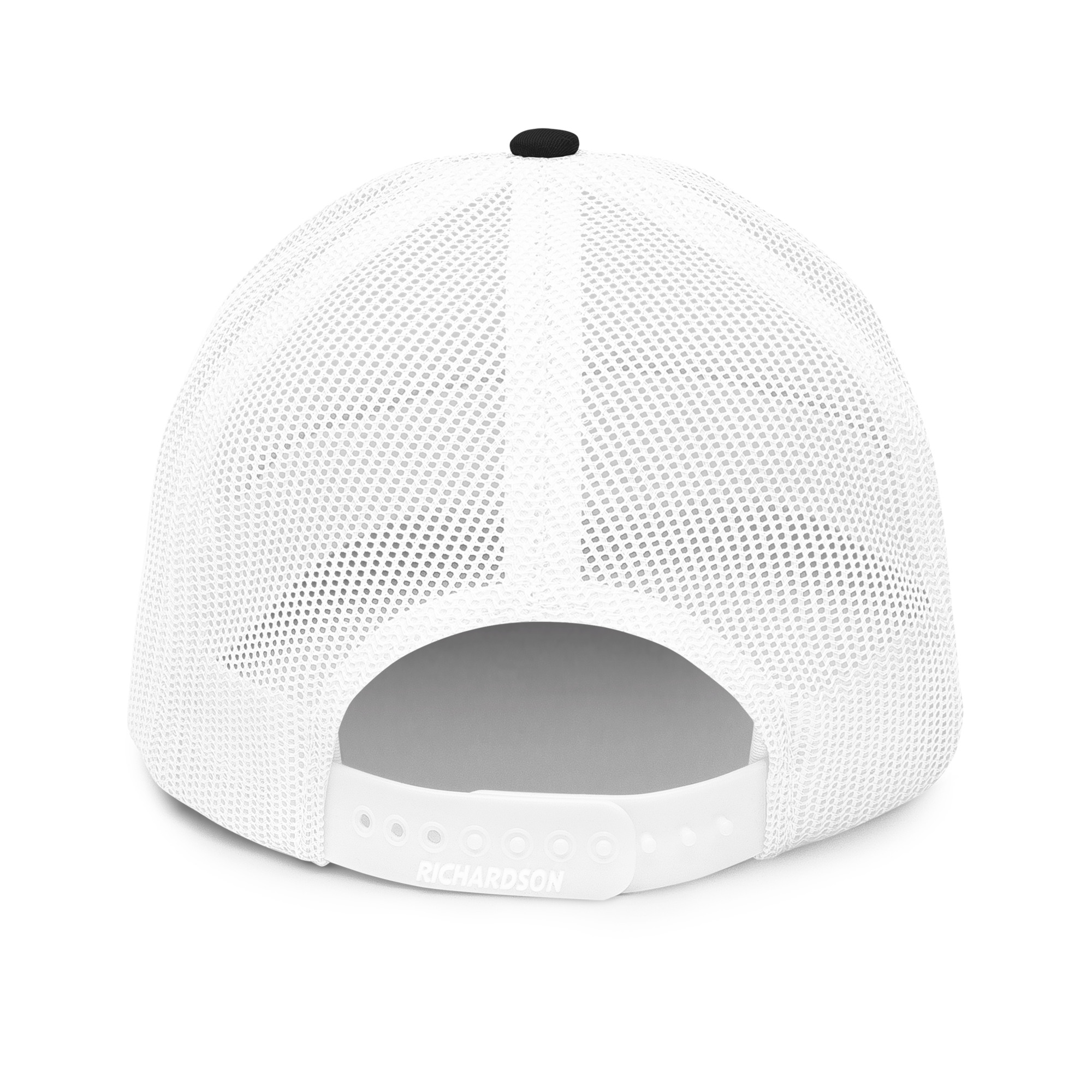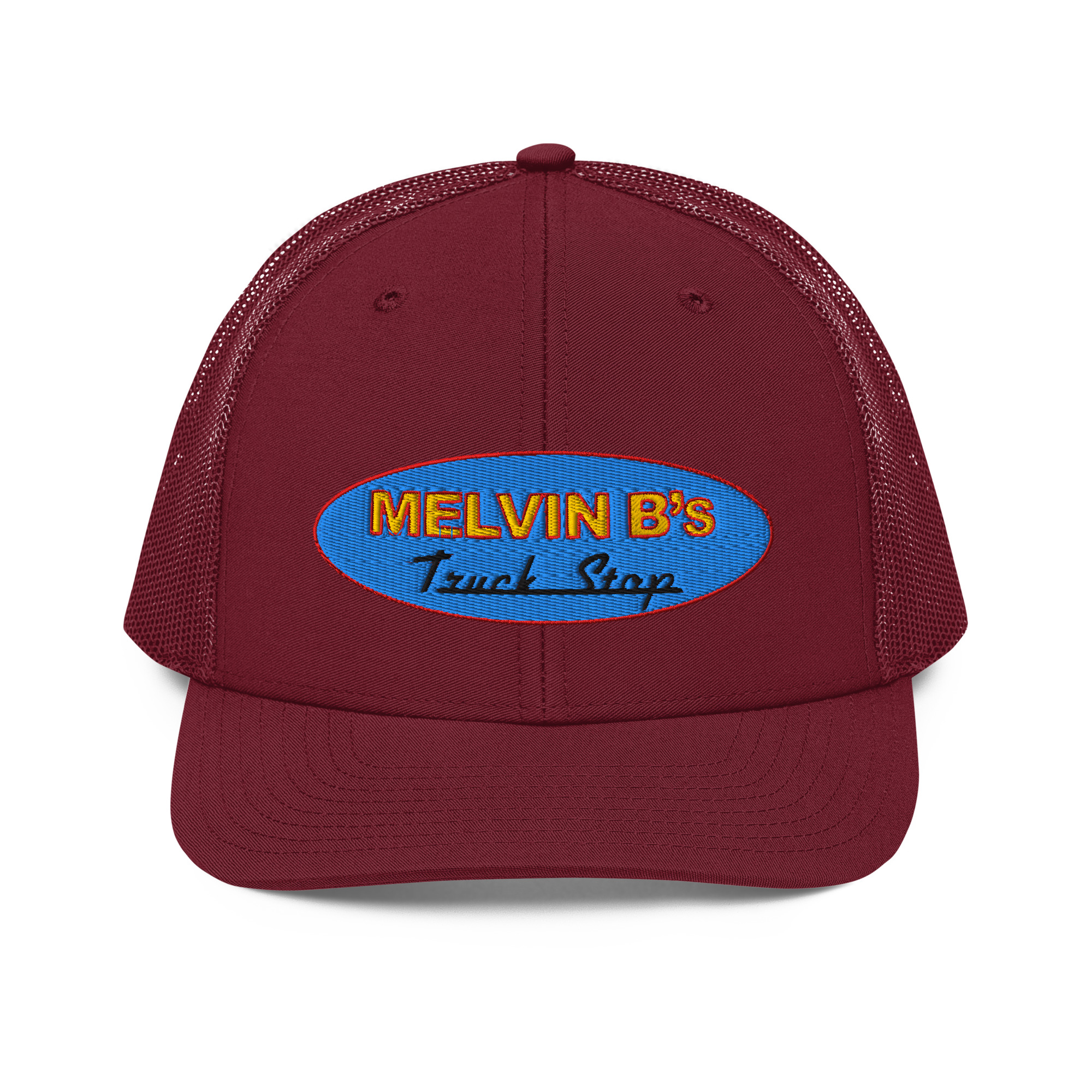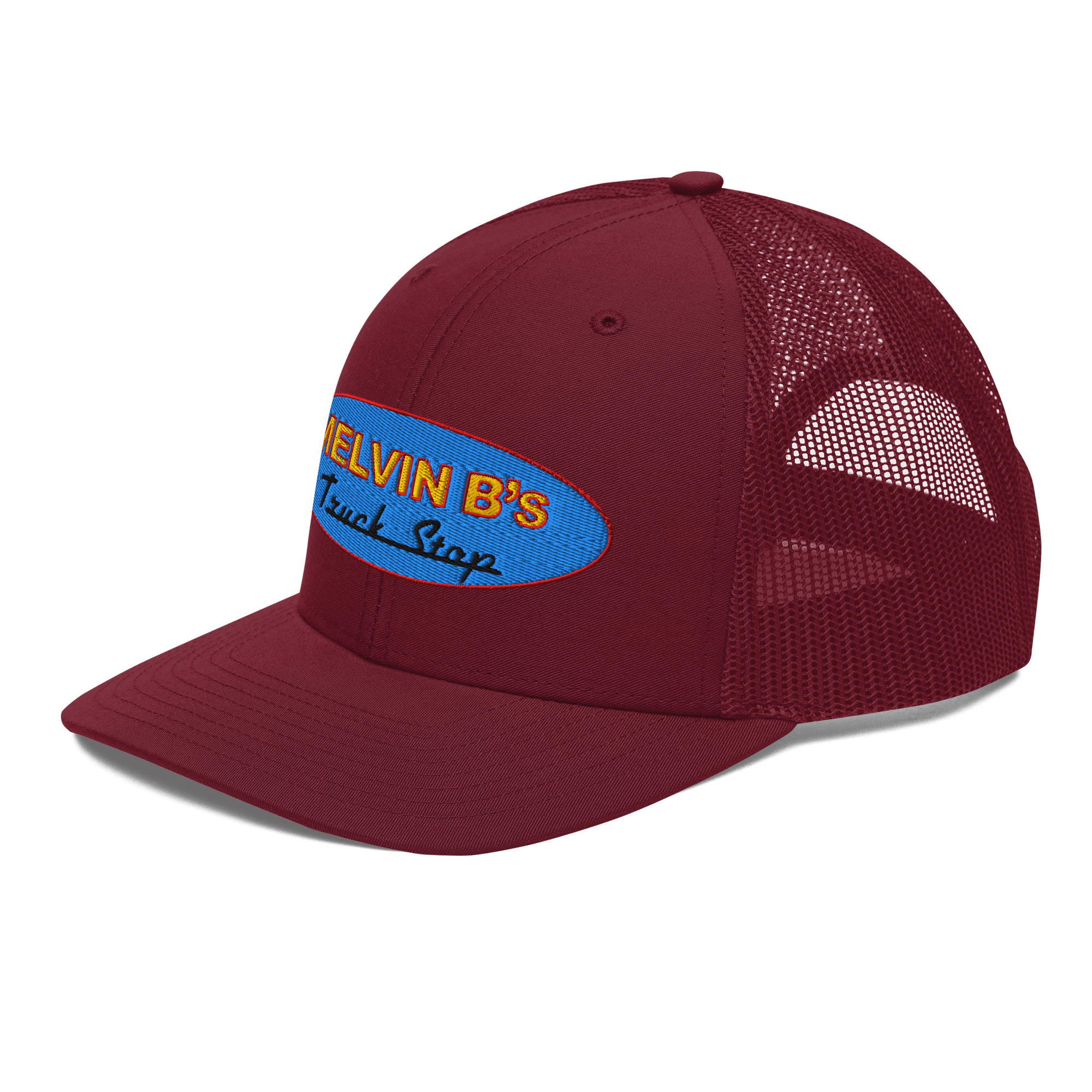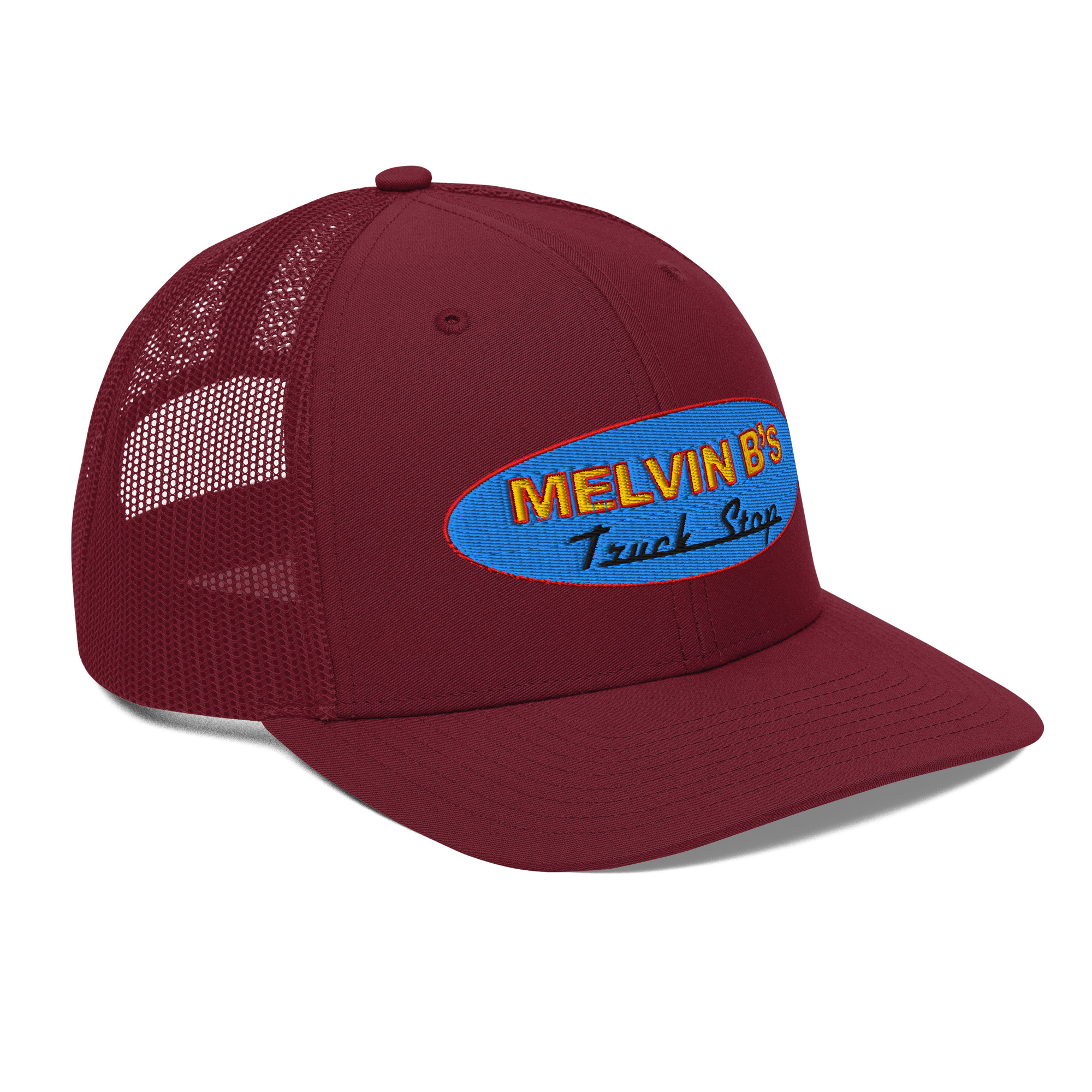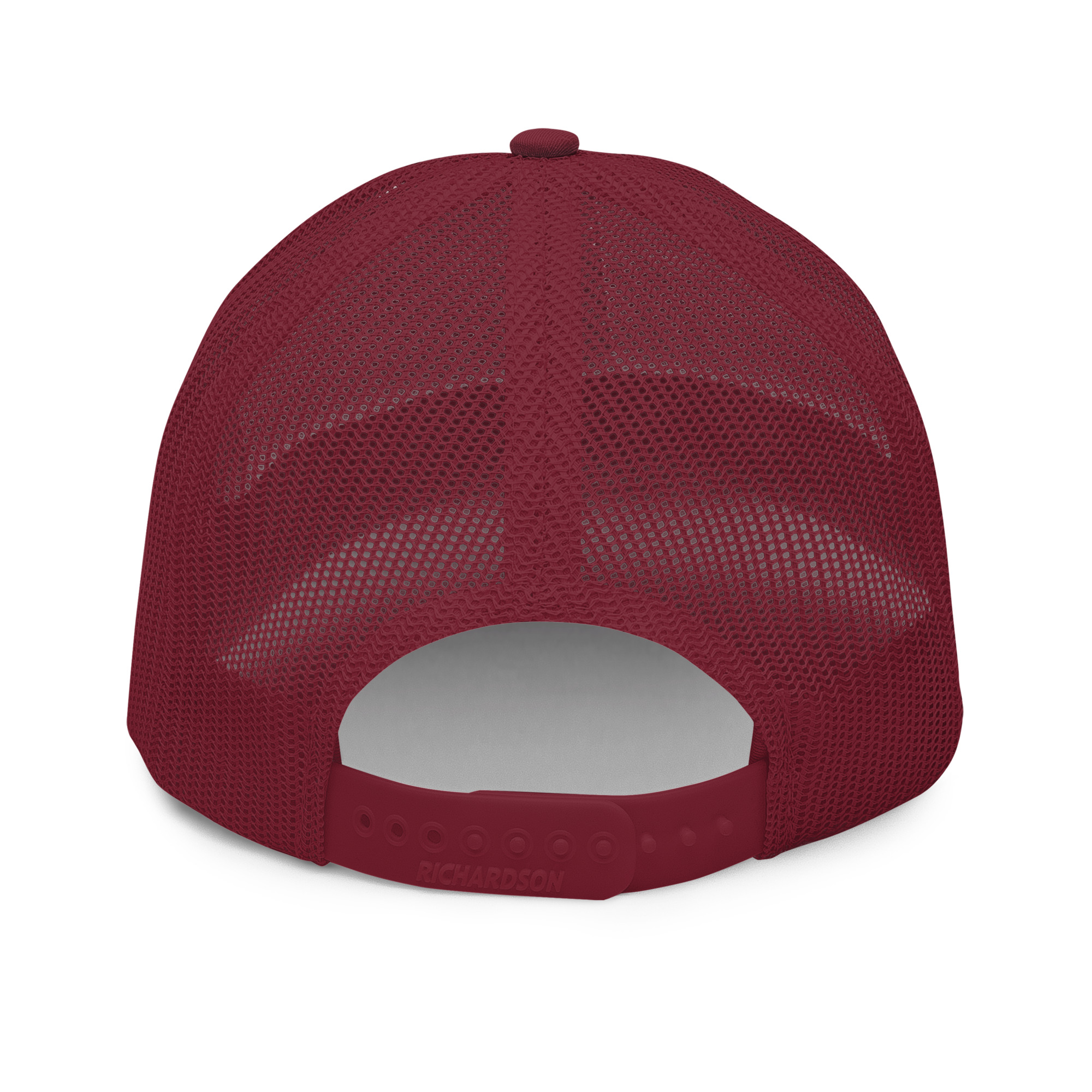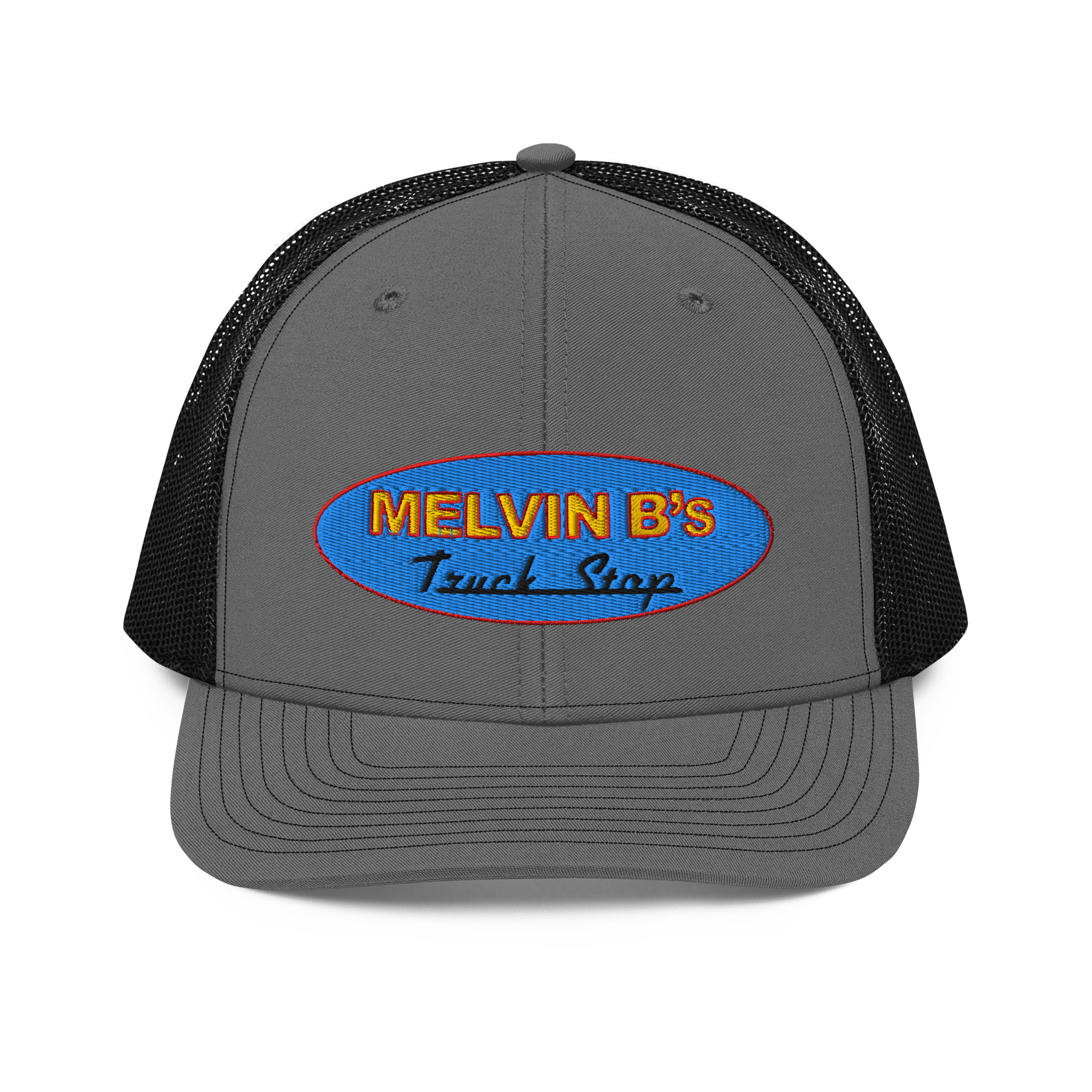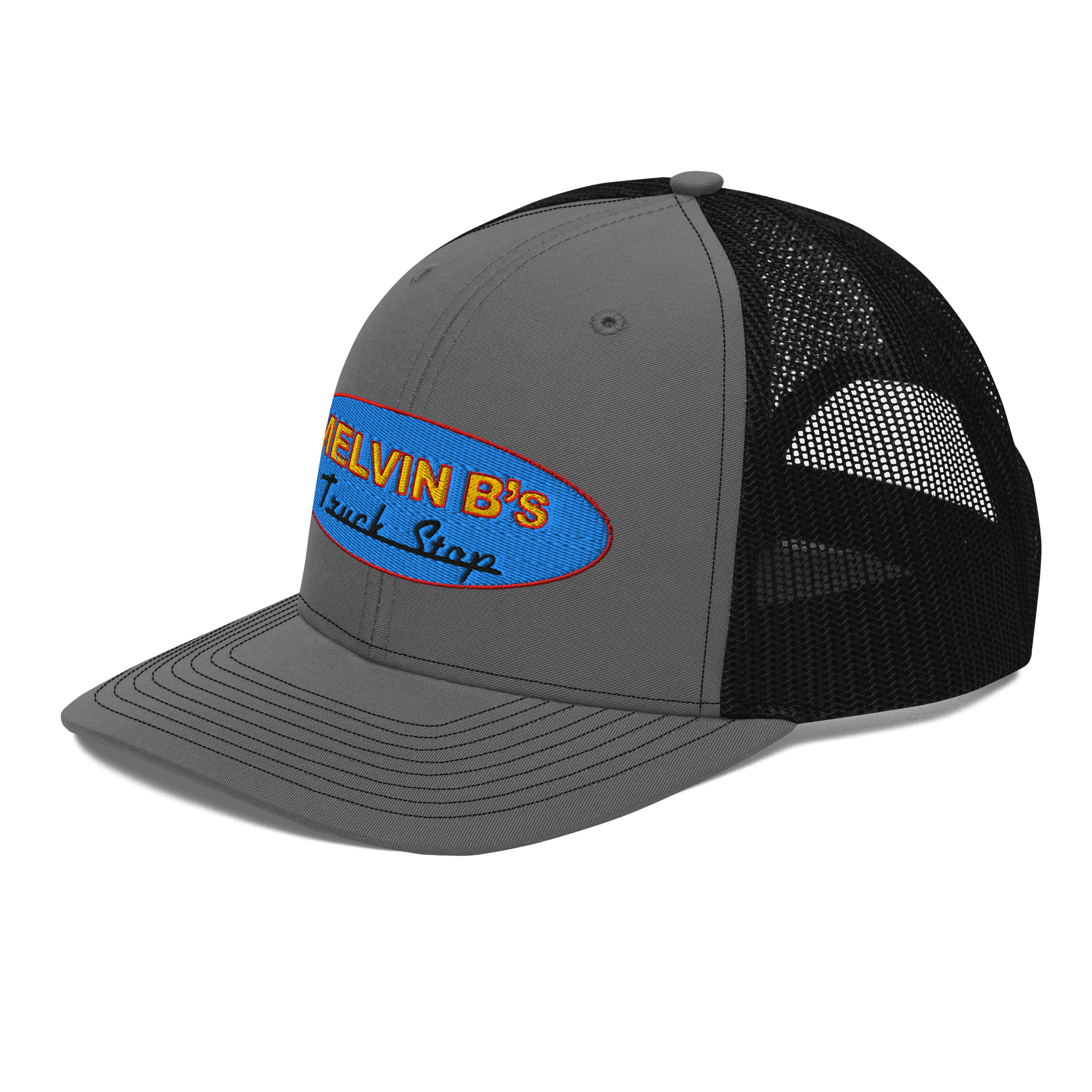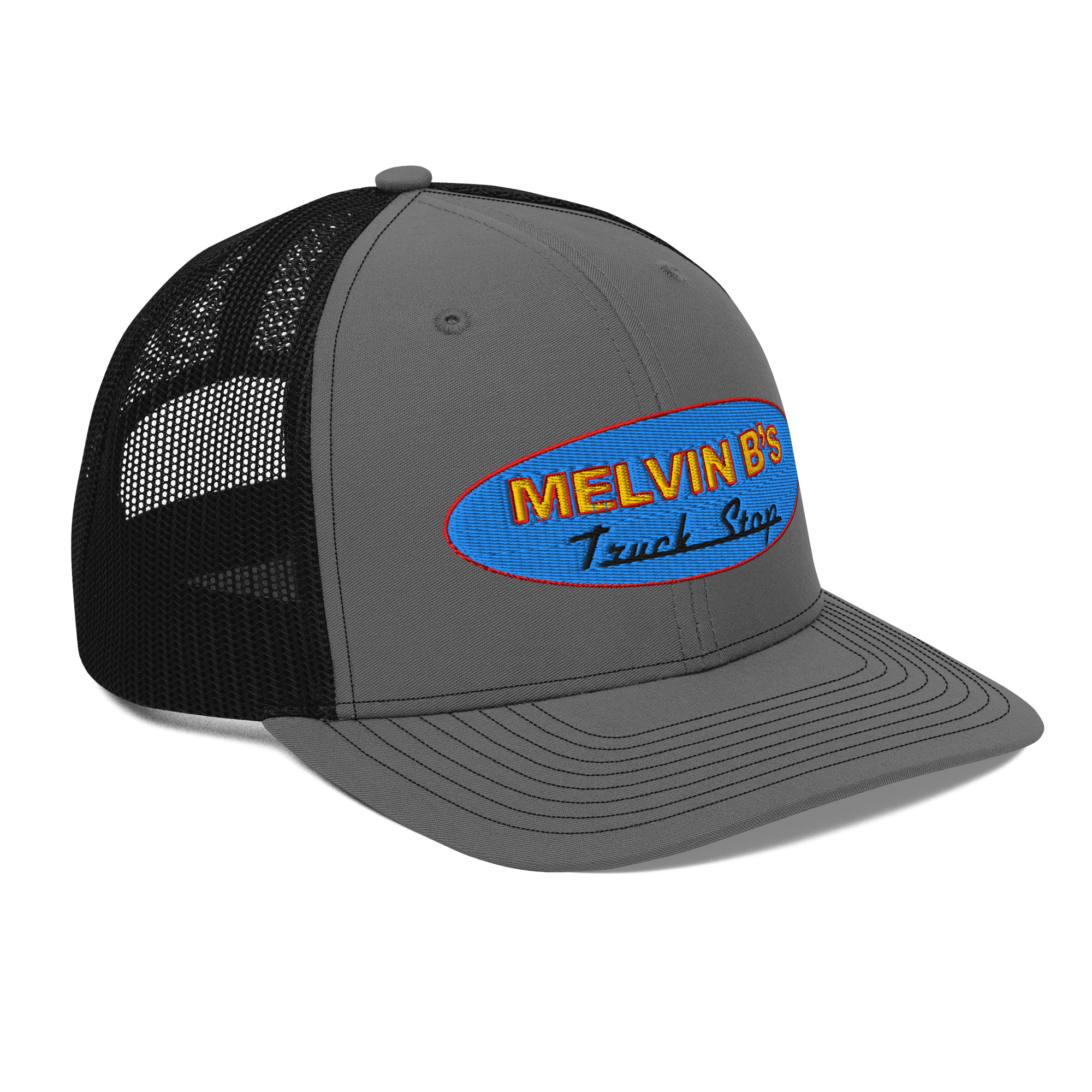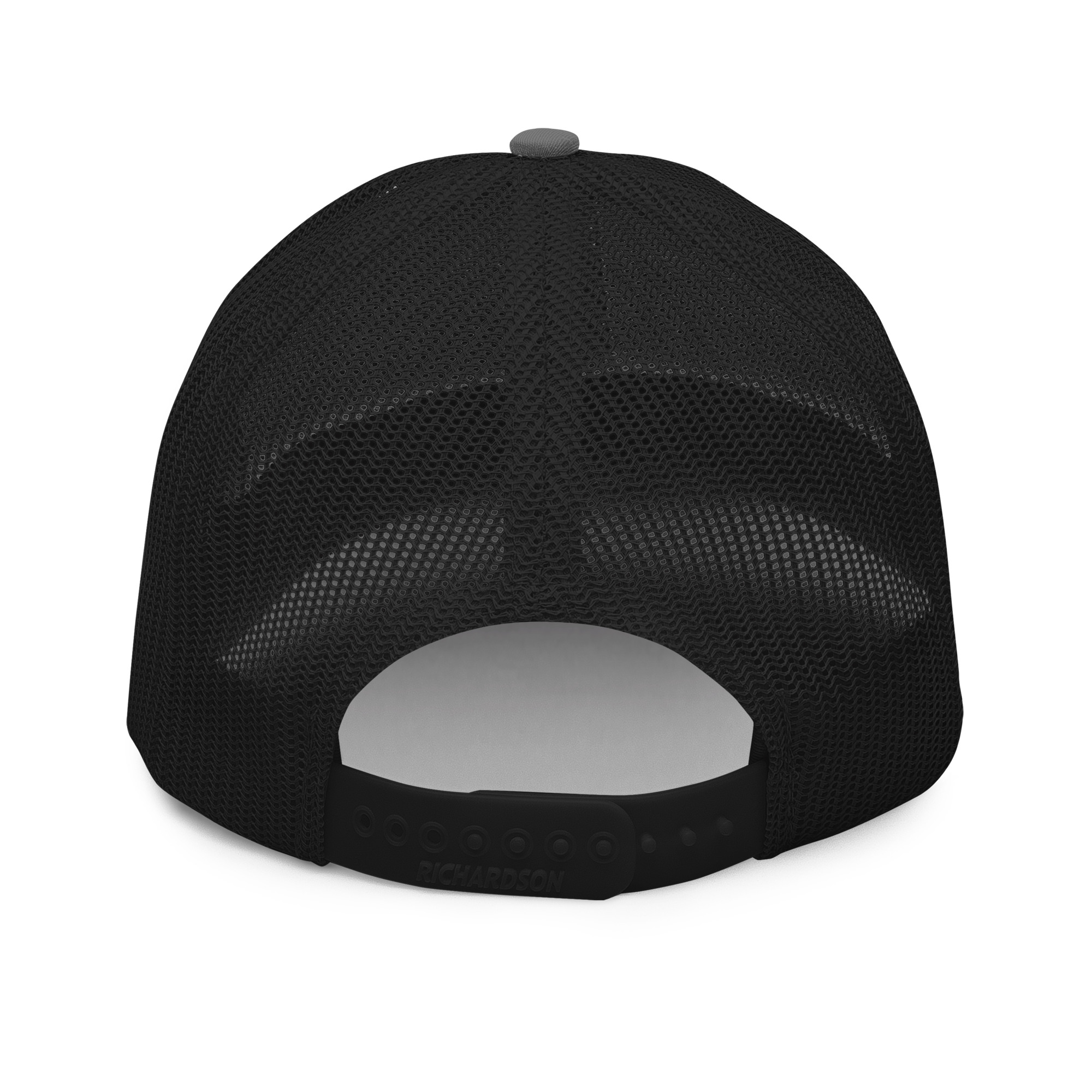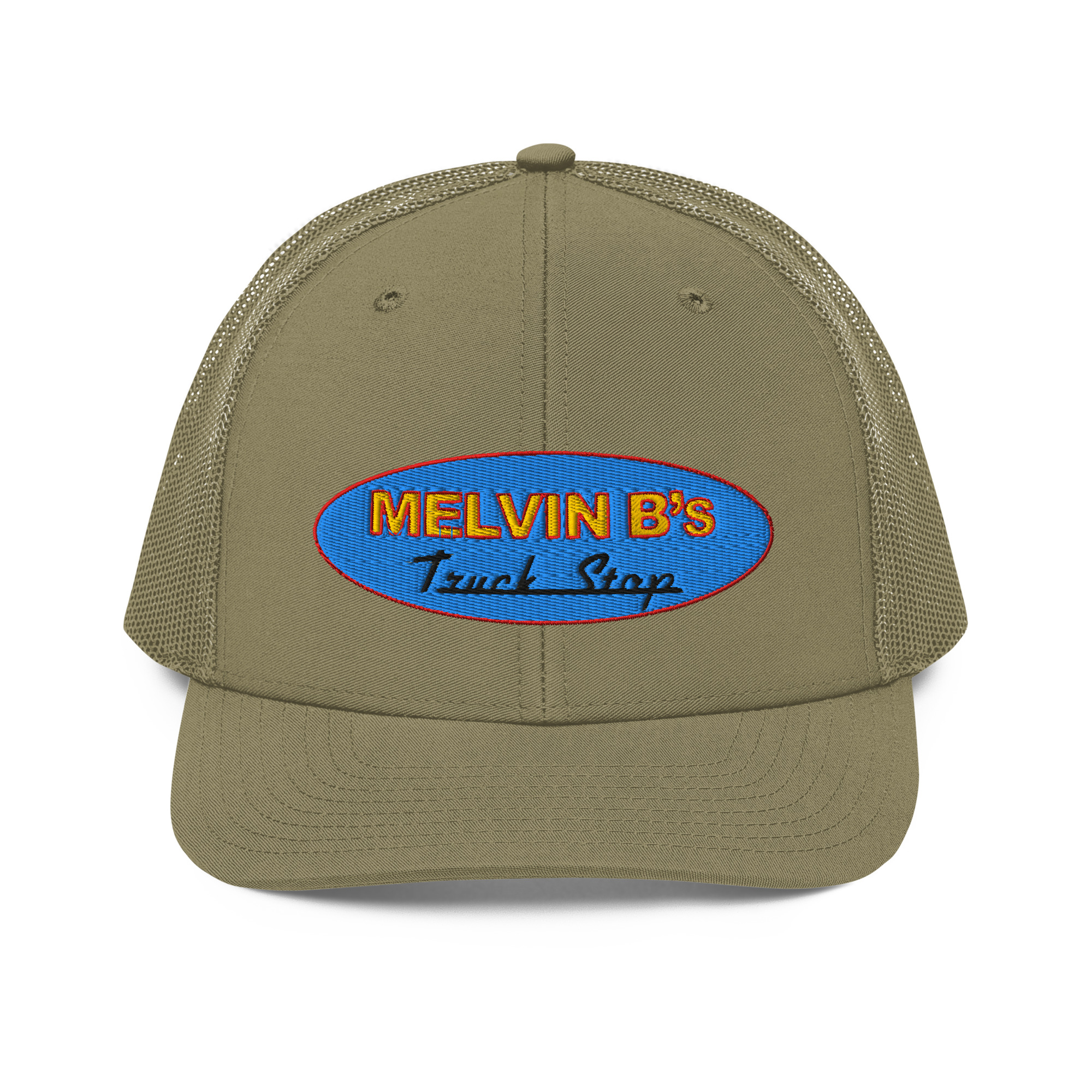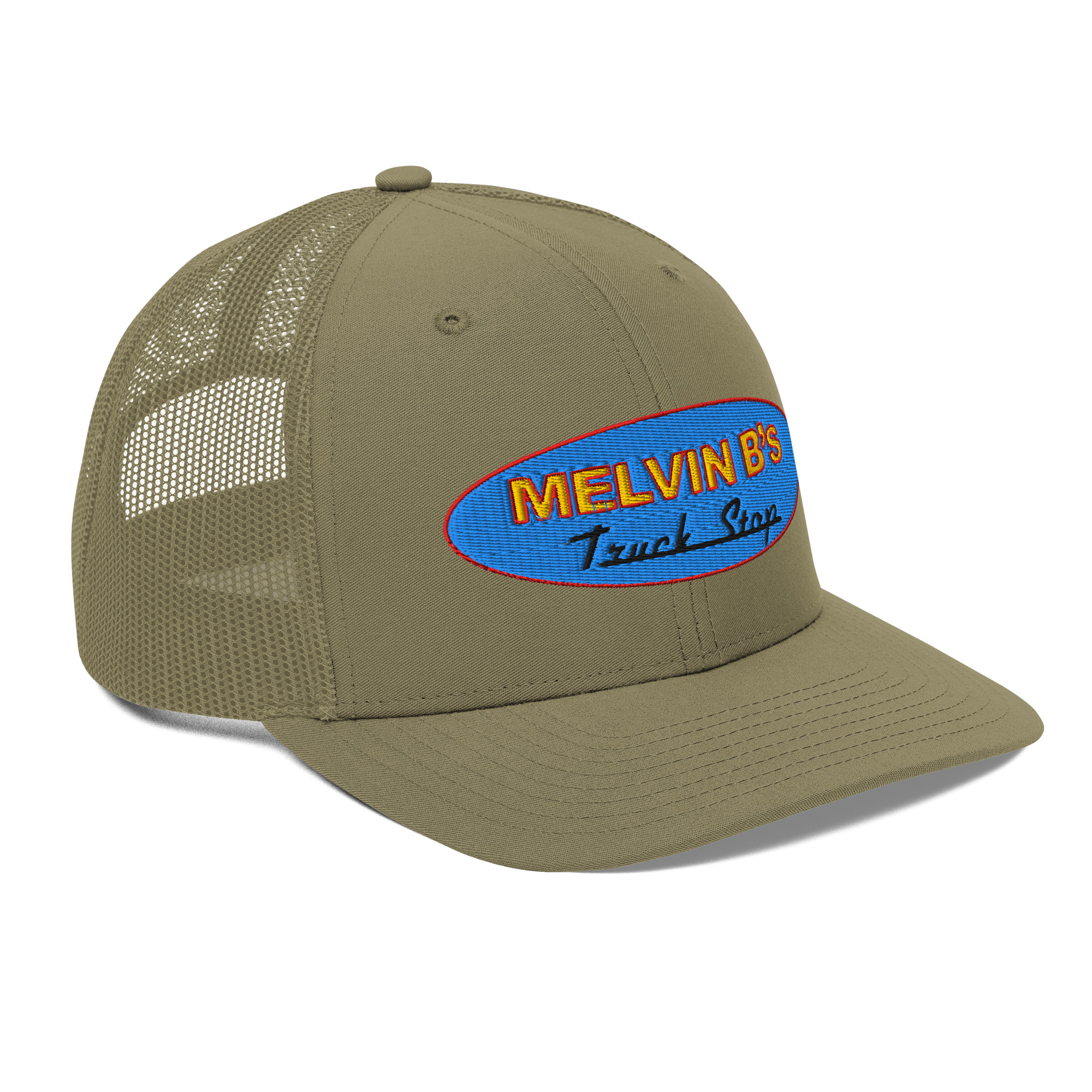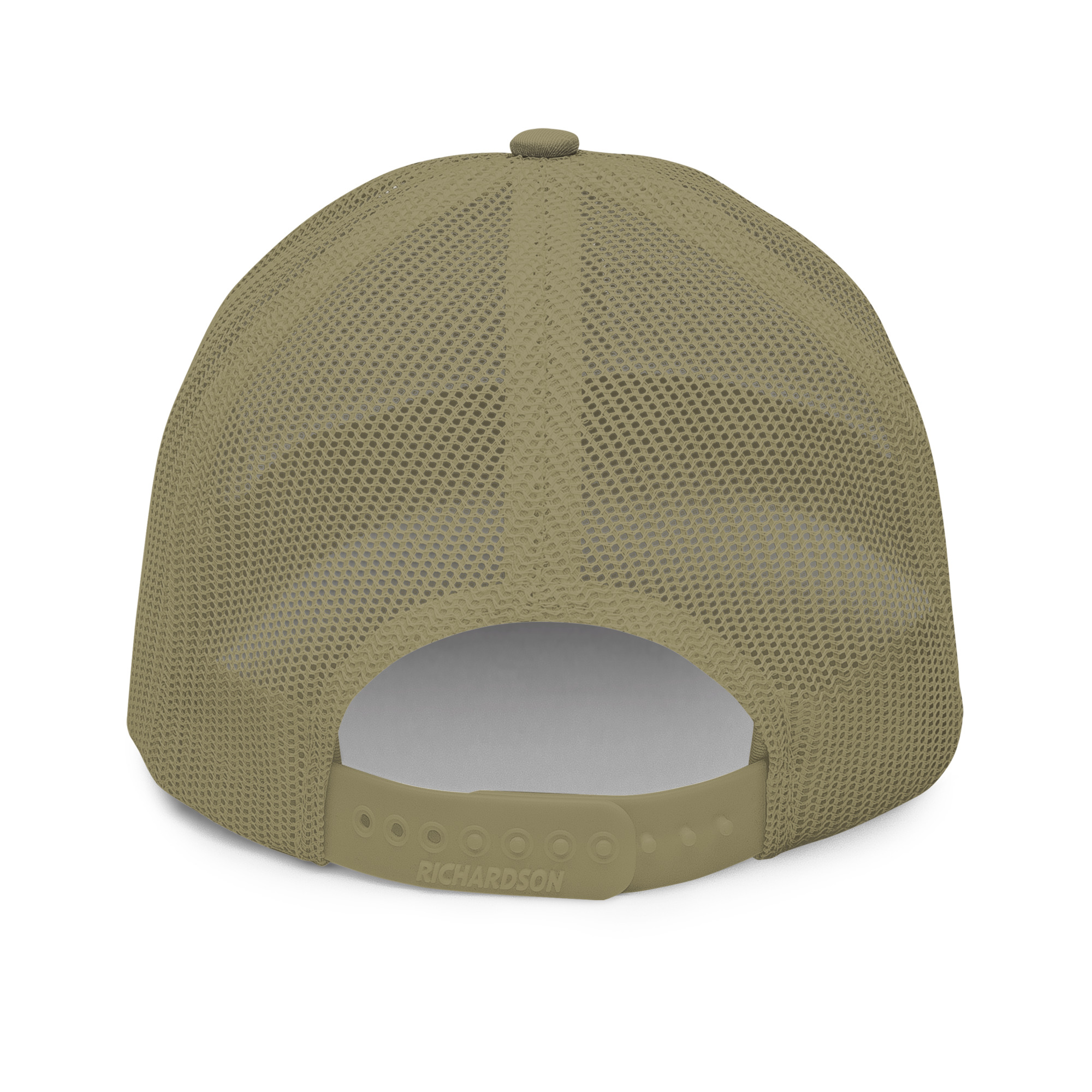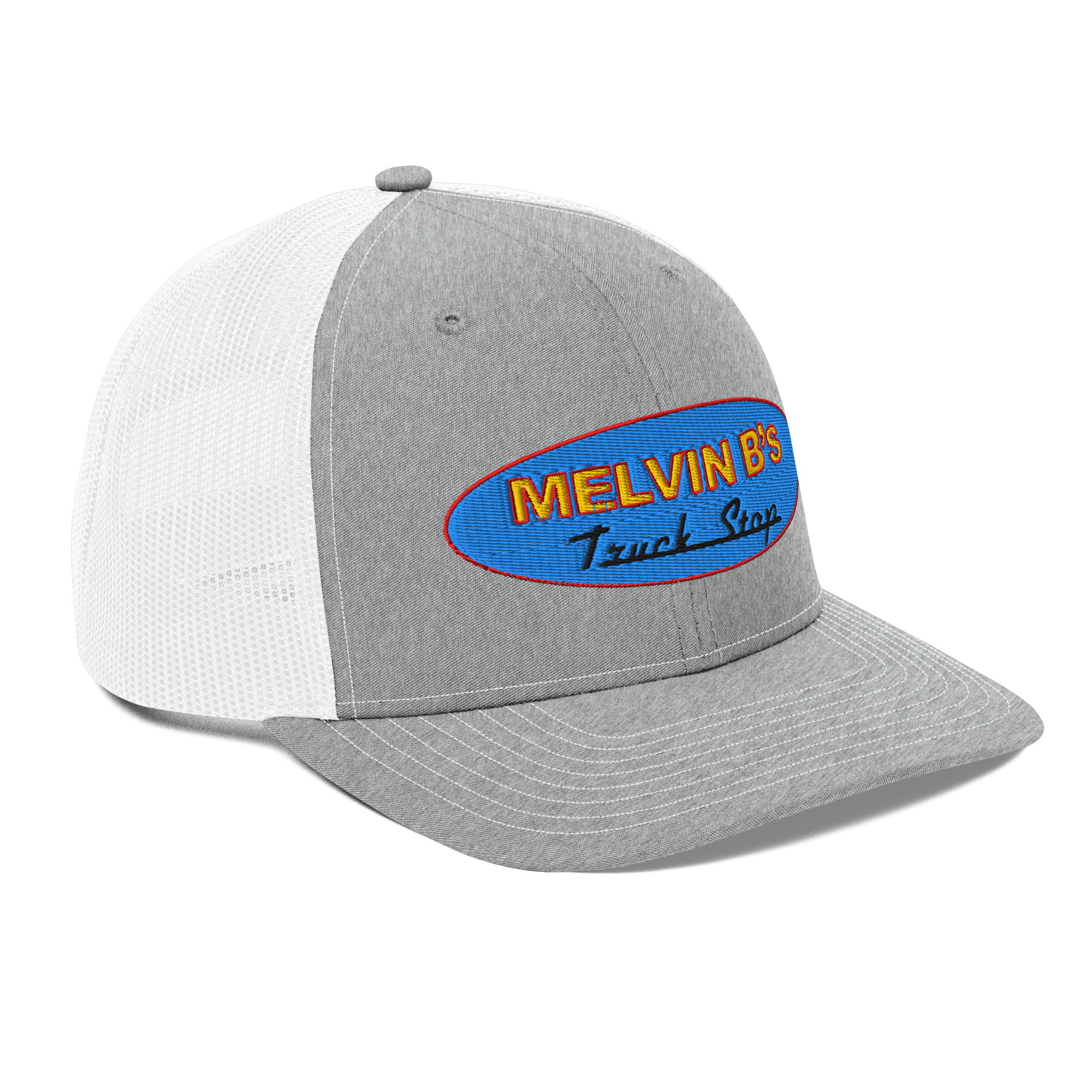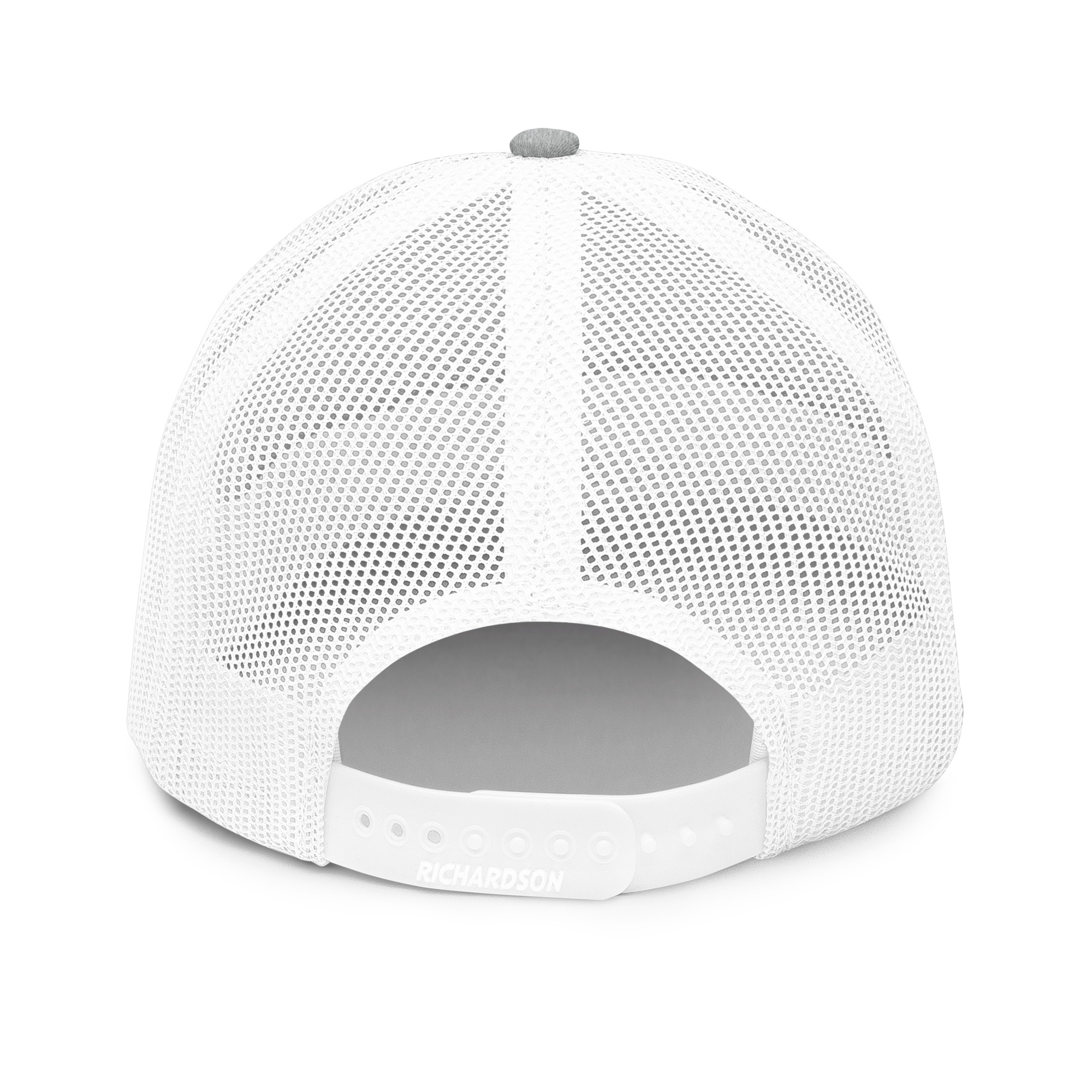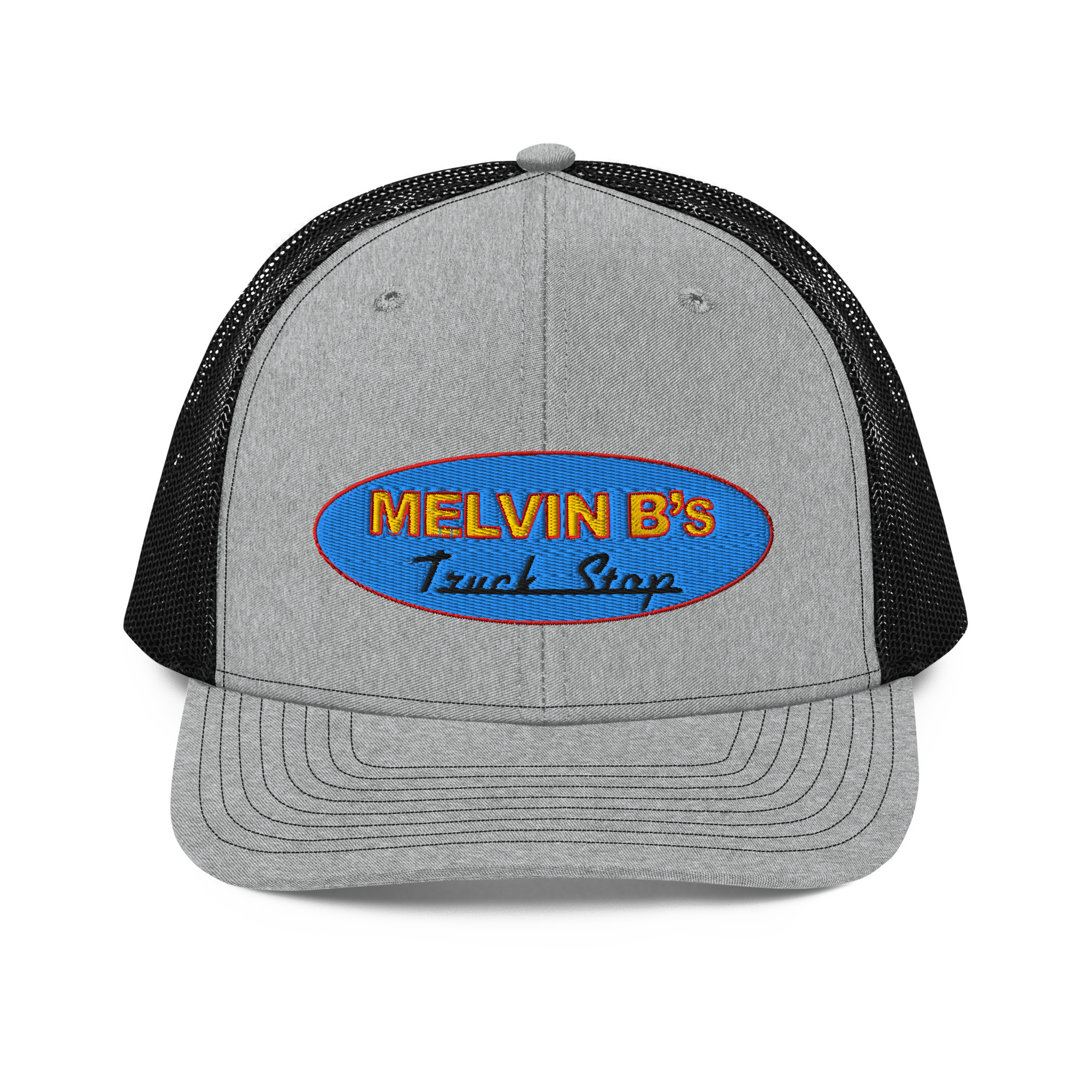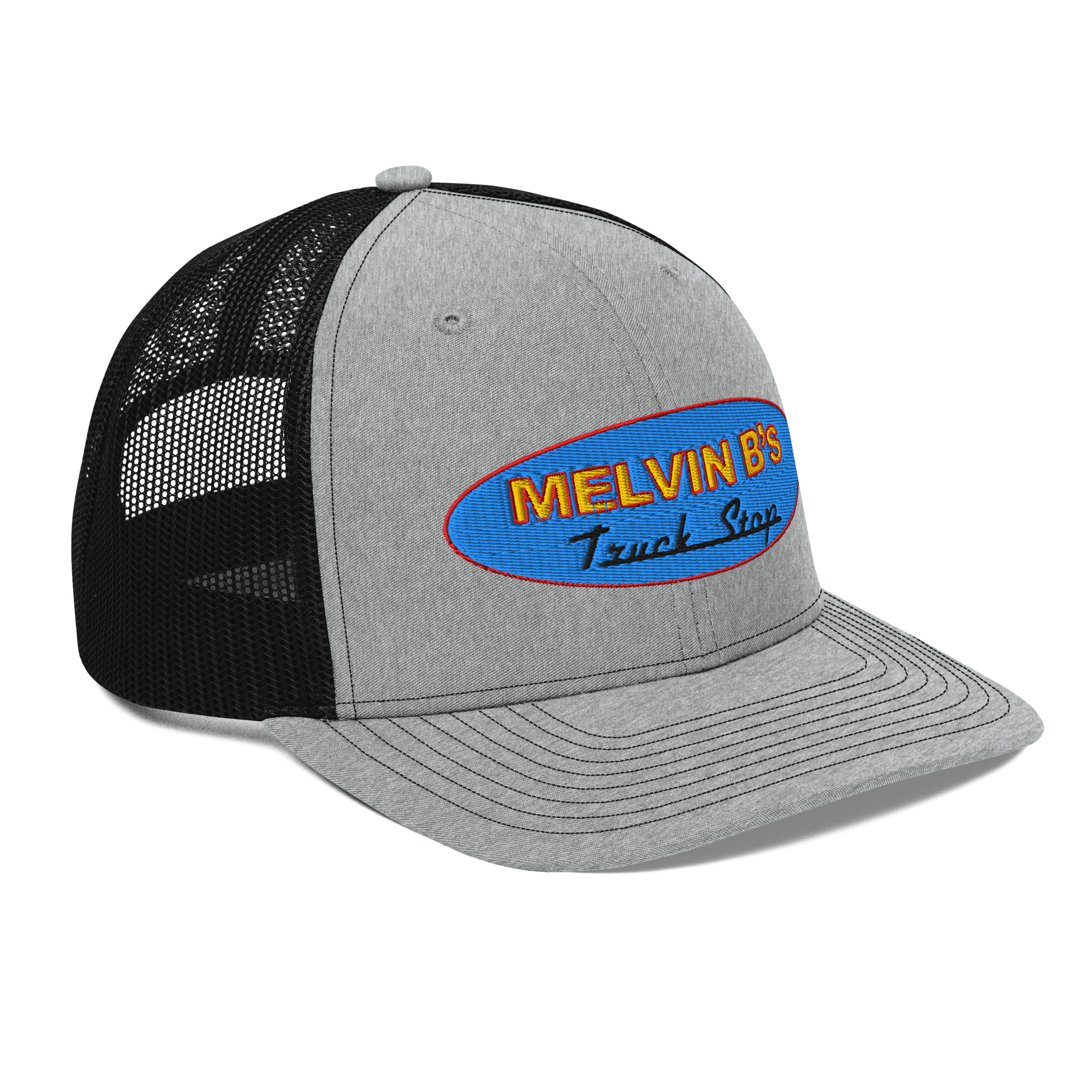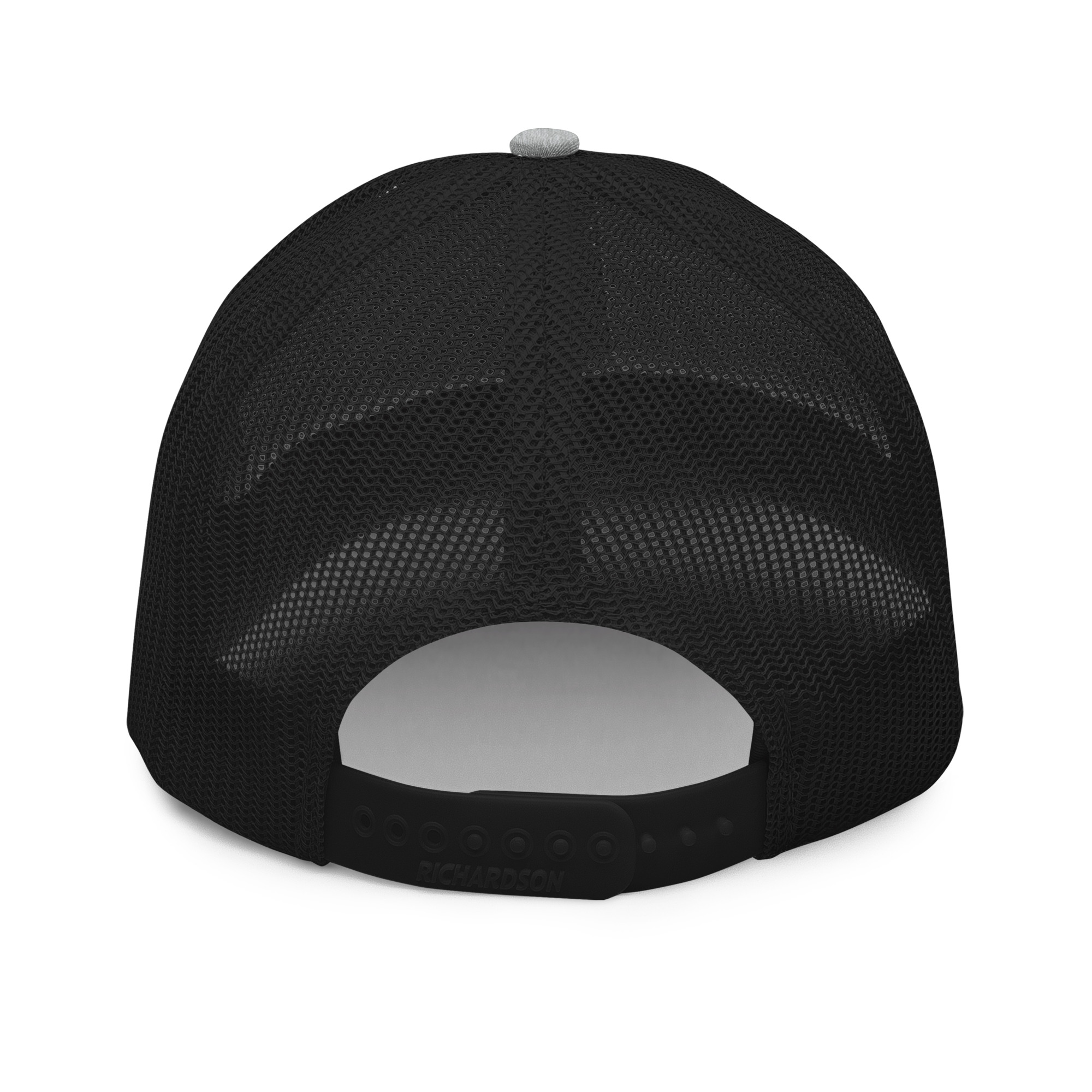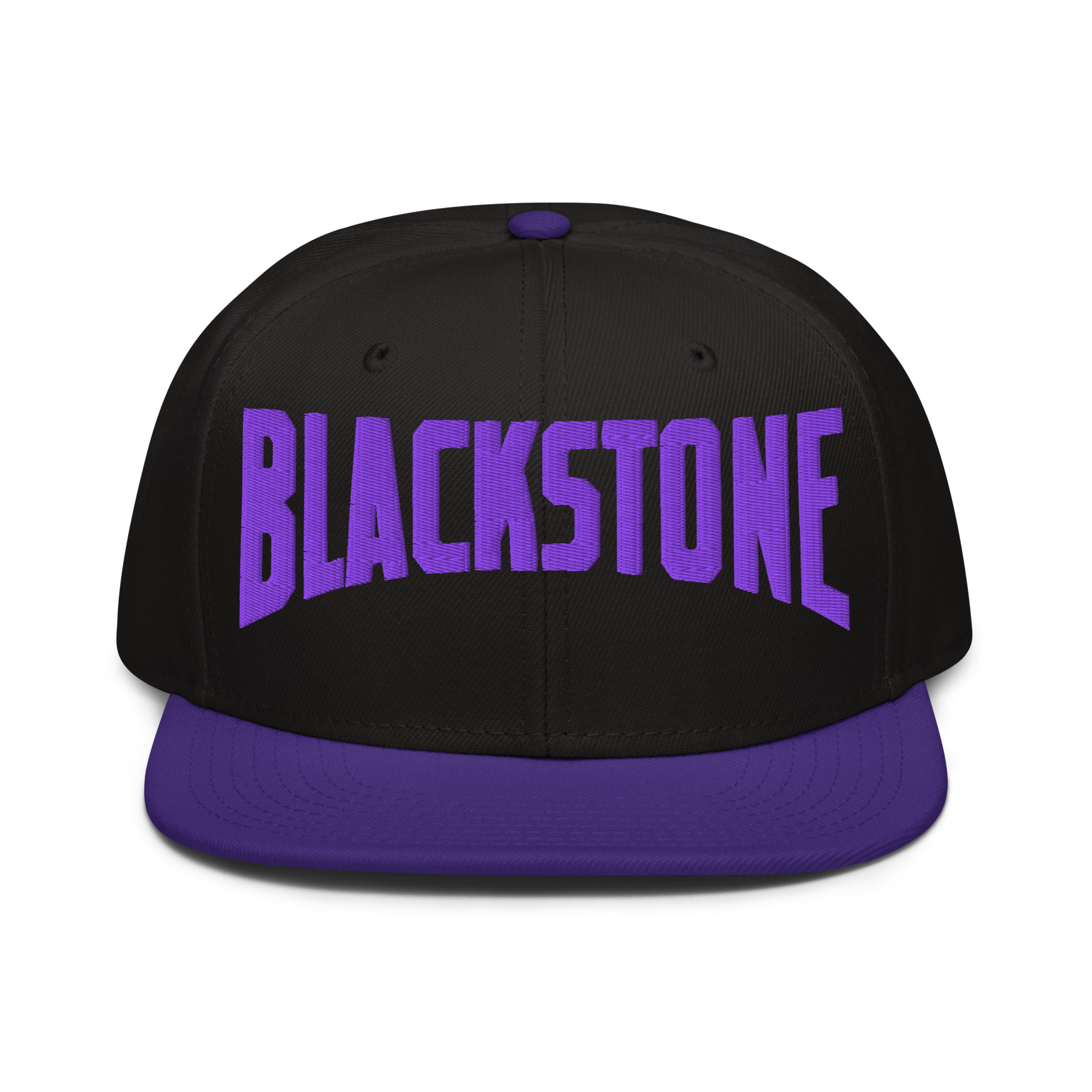Description
- ✦ 60% cotton, 40% polyester
- ✦ 100% polyester mesh back
- ✦ Structured, 6-panel, mid-profile cap
- ✦ Pre-curved contrast stitched visor
- ✦ Underbill matches visor color
- ✦ Adjustable plastic snapback
- ✦ Blank product sourced from China
Melvin B’s Truck Stop: The Gold Coast’s Unlikely Cultural Institution
No Trucks, No Diesel—Just Chicago’s Best Beer Garden
Despite its deliberately misleading name, Melvin B’s Truck Stop never served a single eighteen-wheeler or offered diesel fuel. Instead, this Gold Coast institution at 1114 N. State Street became one of Chicago’s most beloved beer gardens, a place where the city’s social contradictions played out nightly on an outdoor patio that stretched to the sidewalk. For over three decades, Melvin B’s transformed a triangular corner where State Street and Rush Street converge into Chicago’s premier people-watching venue, earning recognition as the city’s best after-work bar and becoming what locals called “a cultural institution of Chicago.”
The Cedar Hotel’s Ground Floor Revolution
The establishment occupied the ground floor of the historic Cedar Hotel, at the precise point where Cedar Street terminates into the State and Rush intersection. This unusual triangular configuration created a natural amphitheater for urban theater, with the bar’s famous beer garden comprising 80 percent of the establishment’s space. The outdoor seating area, protected by awnings and heated during shoulder seasons, allowed patrons to observe the constant parade of Gold Coast residents, tourists, and the occasional celebrity making their way through one of Chicago’s toniest neighborhoods.
The Playful “Truck Stop” Mystique
The origins of Melvin B’s name remain somewhat mysterious—no definitive record exists of who Melvin B actually was, though the playful “truck stop” moniker in the heart of the Gold Coast clearly demonstrated the owners’ sense of humor. Jack Binyon and Donnie Kruse, who operated the bar for its final 16 years before its 2007 closure, inherited not just a business but a carefully cultivated atmosphere that balanced approachability with sophistication. The venue’s logo—a small turtle wearing a trucker’s cap—appeared on everything from matchbooks to the wooden totem pole that stood sentinel at the entrance, creating a distinctly Chicago iconography.
Live Music and Sophisticated Comfort Food
The indoor space featured a pianist performing nightly from 7 PM to midnight, with additional afternoon sessions on weekends. This live entertainment created an atmosphere reminiscent of Chicago’s earlier tavern culture. While the “truck stop” name might have suggested greasy spoon fare, the kitchen served a sophisticated array of options including jerked, blackened, and buffalo chicken preparations, pasta dishes, quiche, and even turtle soup—a nod to the establishment’s reptilian mascot. The bar became famous for its hamburgers, which many considered among the best in the Rush Street area. Notably, the venue enforced a “no swimsuits” dress code, maintaining a level of decorum despite its casual atmosphere.
From Speakeasy to People-Watching Paradise
The location’s history before becoming Melvin B’s adds another layer to its Chicago story. The Cedar Hotel had housed various establishments in its ground floor since the 1920s, including speakeasies during Prohibition and, according to local lore, “a whorehouse” in earlier decades. This progression from illicit enterprise to legitimate business to beloved local institution mirrors the evolution of the Rush Street district itself, which transformed from Prohibition-era vice district to upscale entertainment zone over the course of the twentieth century.
Awards and Recognition
During its peak years in the 1990s and early 2000s, Melvin B’s accumulated significant recognition from Chicago’s food and nightlife media. Citysearch Chicago named it an Editorial Nominee for Best Outdoor Bar in 2000, and it won Best After-Work Bar for 2000-2001, also placing in the Audience Top 10 for the same category. These accolades reflected not just the quality of the venue but its essential role in Chicago’s social fabric—a place where different worlds intersected over beer and burgers. Within a two-block radius stood Gibson’s steakhouse, Bistro Zinc, Carmine’s, Luciano’s, the Hunt Club, Dublin’s, and the infamous Rush Street bars, but Melvin B’s maintained its distinct identity through prime location, reasonable prices, and an atmosphere that welcomed everyone from construction workers to commodity traders.
The End of an Era
September 2007 marked the end of Melvin B’s run, when the bar closed to make way for the Mondrian Hotel development. The closure sparked nostalgia among longtime patrons who remembered the venue as “one of the best beer gardens the city ever saw.” The proposed hotel development promised rooftop bars and modern amenities but could never replicate the street-level engagement that made Melvin B’s special. The bar’s outdoor patio, which had extended onto the public sidewalk through a special city permit, had created a permeable boundary between private business and public space that newer developments, with their security concerns and corporate atmospheres, could never reproduce.
Why This Collection Matters
Melvin B’s Truck Stop captured something essentially Chicago: the city’s refusal to take itself too seriously, even in its fanciest neighborhoods. The deliberately ironic name—a truck stop in the Gold Coast—embodied Chicago’s working-class soul that persists beneath all the luxury towers and Michigan Avenue shopping. This wasn’t just a bar; it was a democratic public space in an increasingly privatized city, where a turtle mascot and Harry Caray references served a clientele that included tech workers, tourists, and longtime residents.
The importance of Melvin B’s to Chicago’s cultural landscape lay not in any single exceptional quality but in its perfect synthesis of location, atmosphere, and timing. It occupied prime real estate without pretension, served good food without gourmet prices, and created community in a neighborhood increasingly dominated by luxury isolation. Its 2007 closure marked not just the end of a popular bar but the conclusion of an era when Chicago’s neighborhoods, even the wealthiest ones, maintained spaces for spontaneous public gathering and cross-class interaction.
“One of the best beer gardens the city ever saw.”
— Chicago patrons remembering Melvin B’s after its 2007 closure
Wear the spirit of the Gold Coast’s democratic oasis.
From the speakeasy days of the Cedar Hotel to the people-watching paradise of the 2000s, Melvin B’s proved that even in Chicago’s fanciest neighborhood, the best spots are the ones that don’t take themselves too seriously.
Heritage Tribute Collection: This design honors the historical legacy of Melvin B’s Truck Stop (1960s-2007) and its role as a beloved Gold Coast institution. Not affiliated with any current establishments or estates. Original artwork inspired by public domain historical records and cultural heritage. Part of Vintage Chicago’s mission to preserve the stories of Chicago’s greatest lost landmarks.

